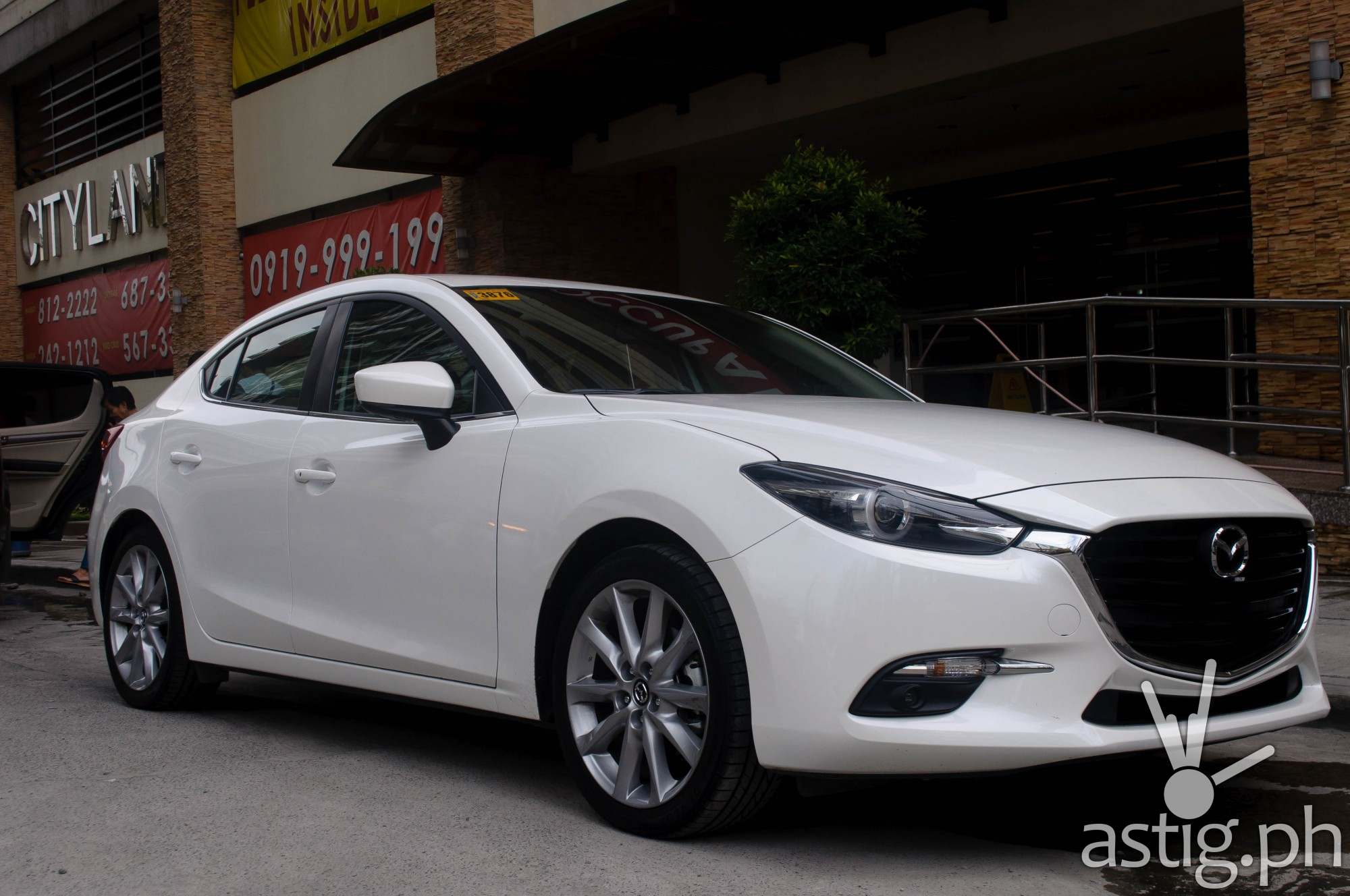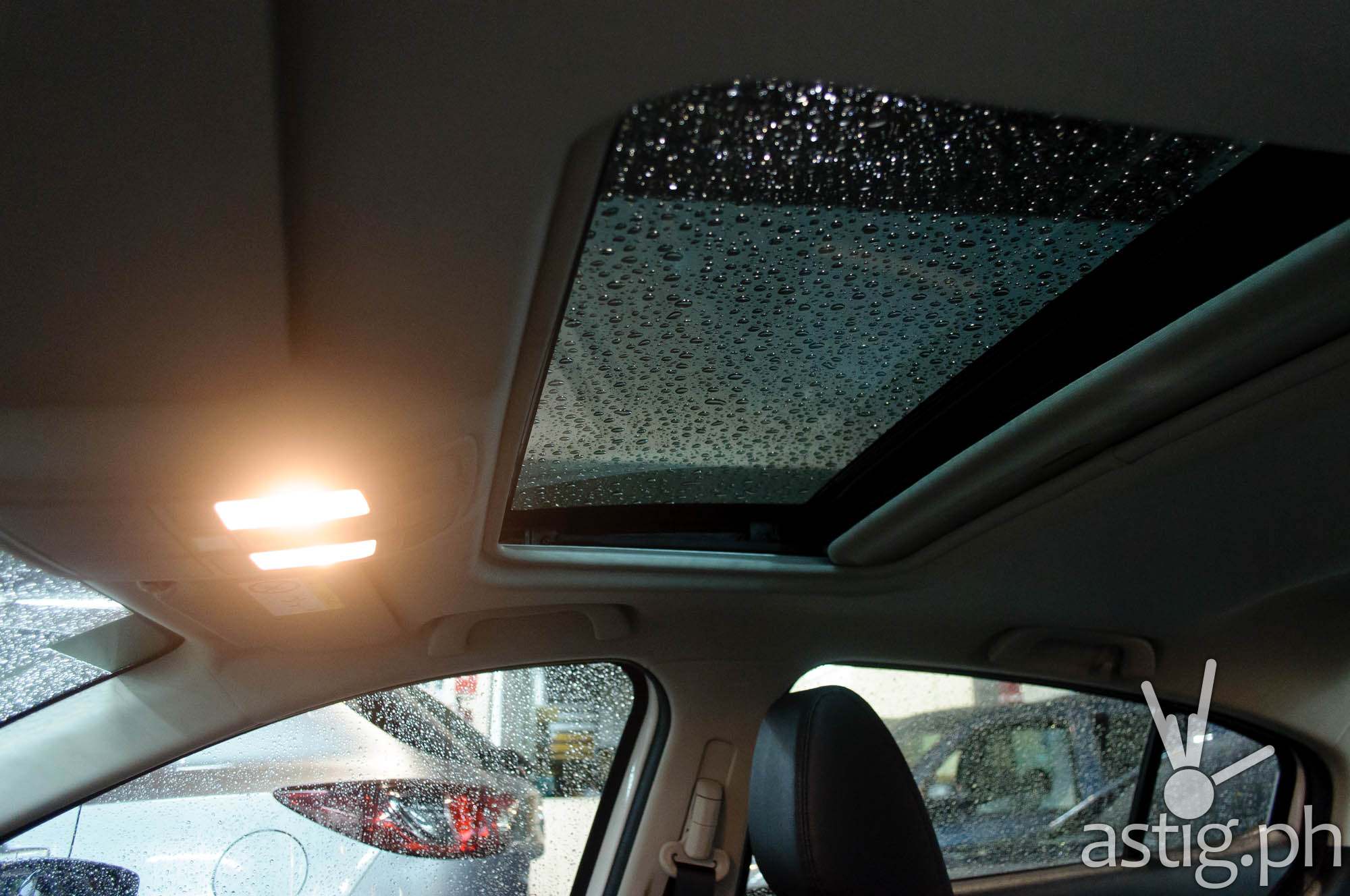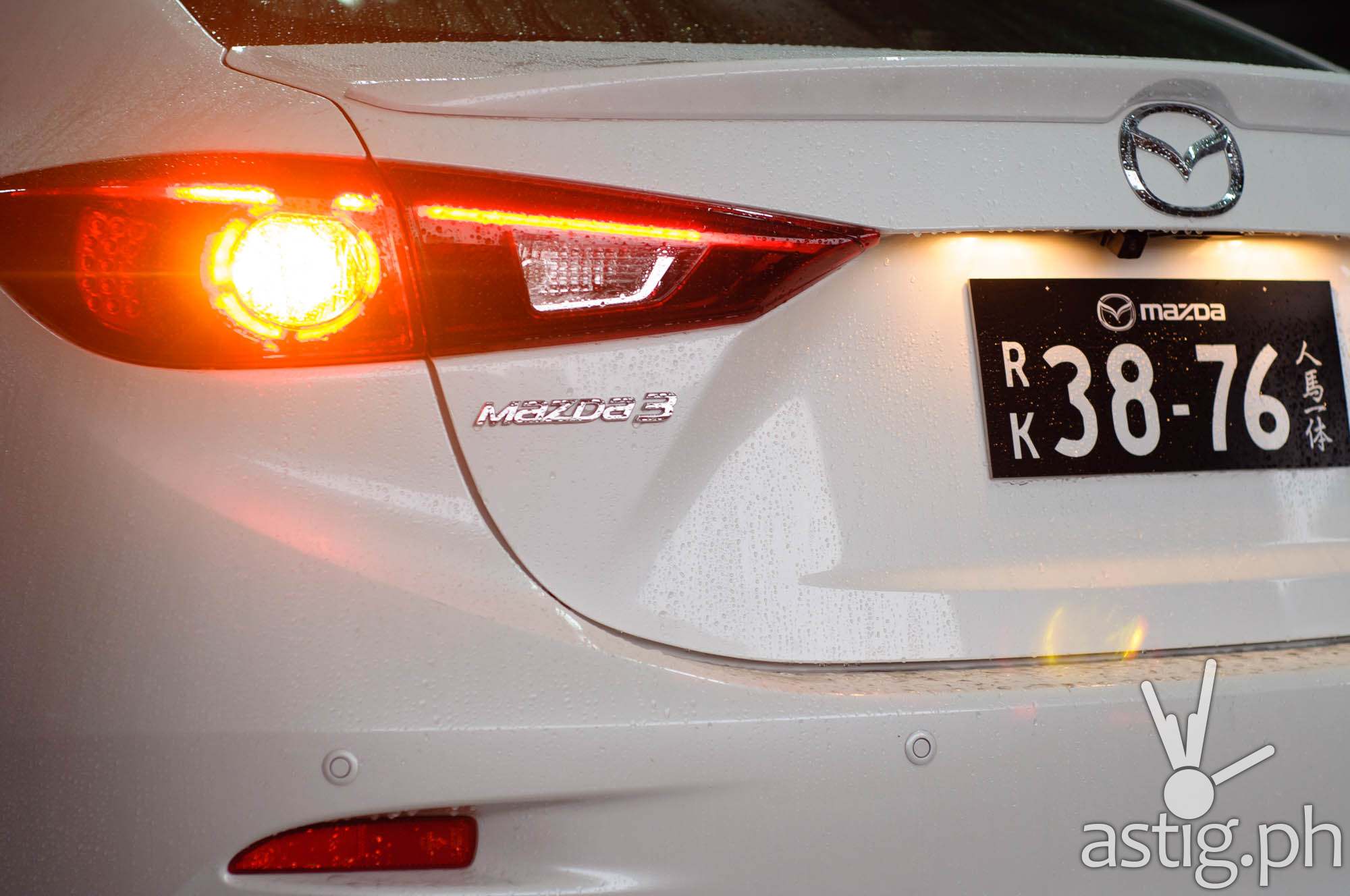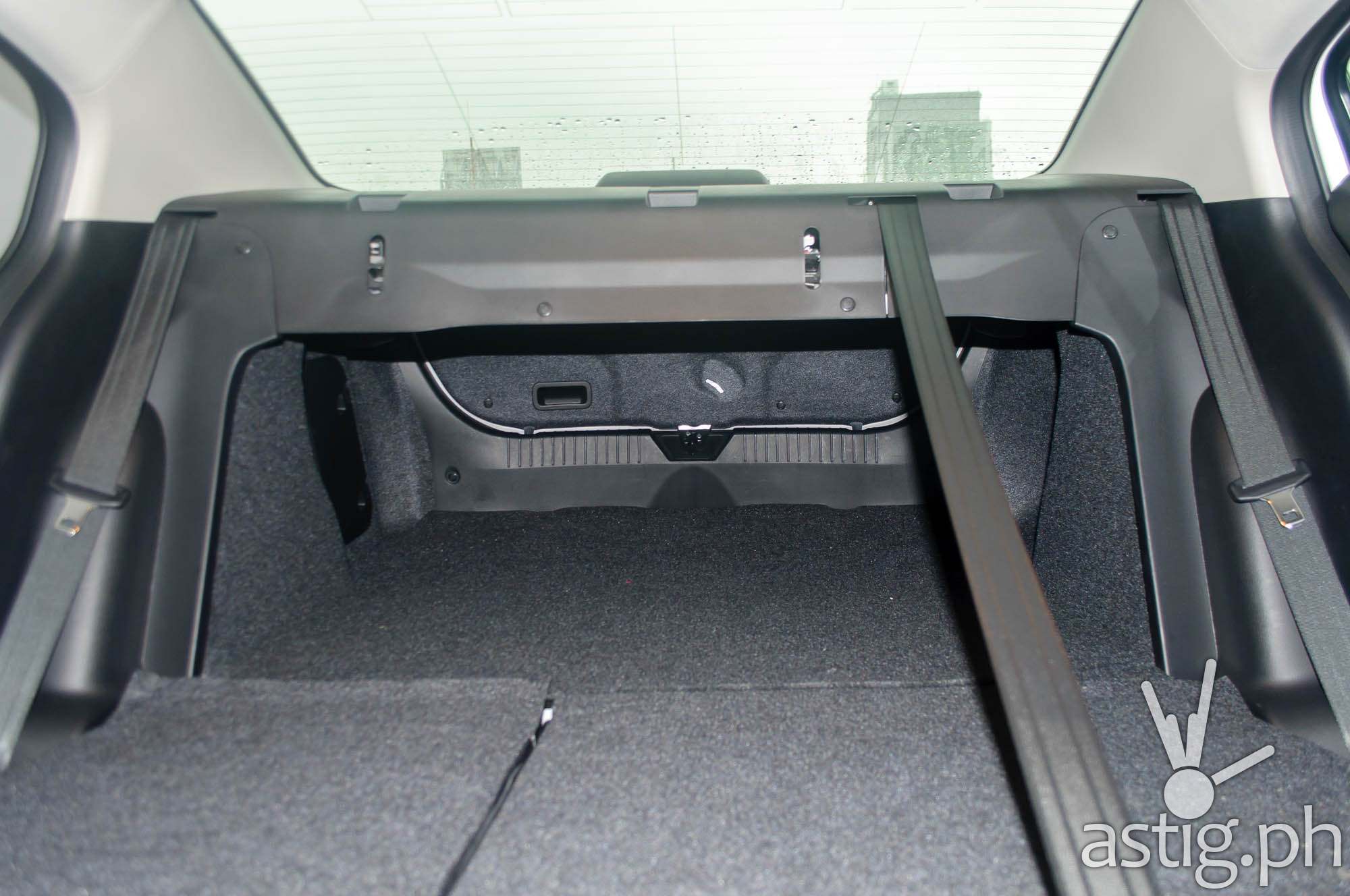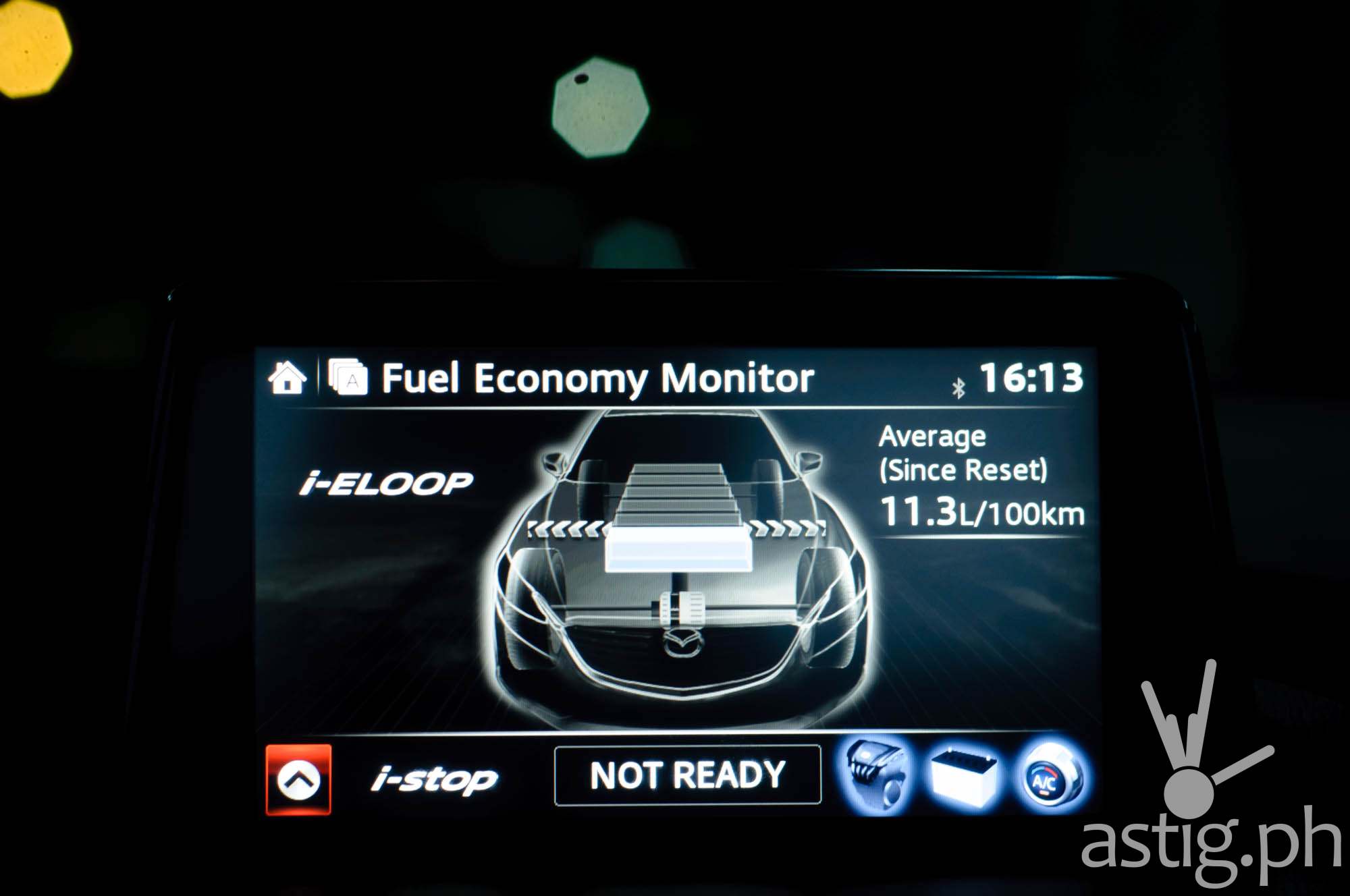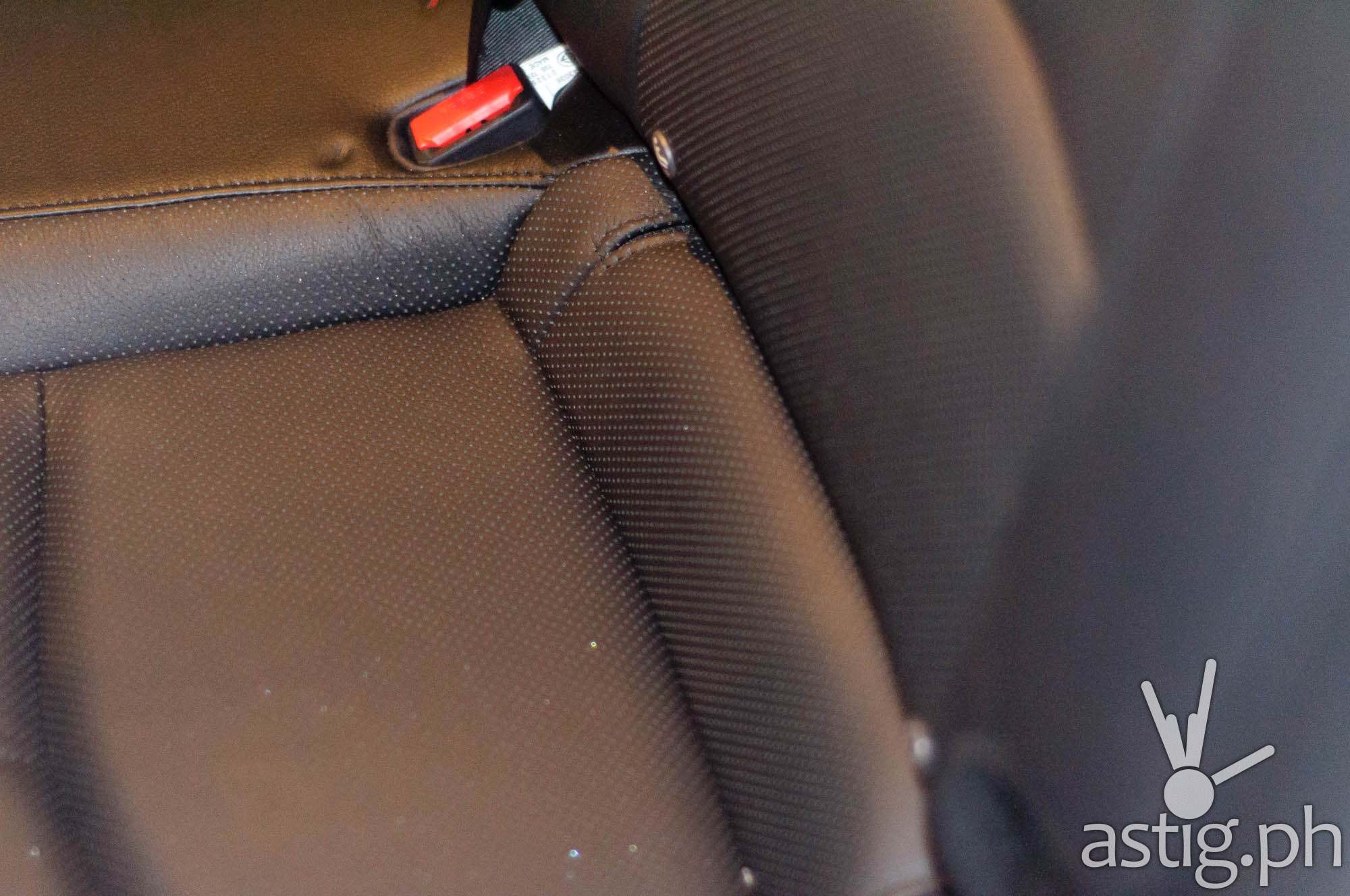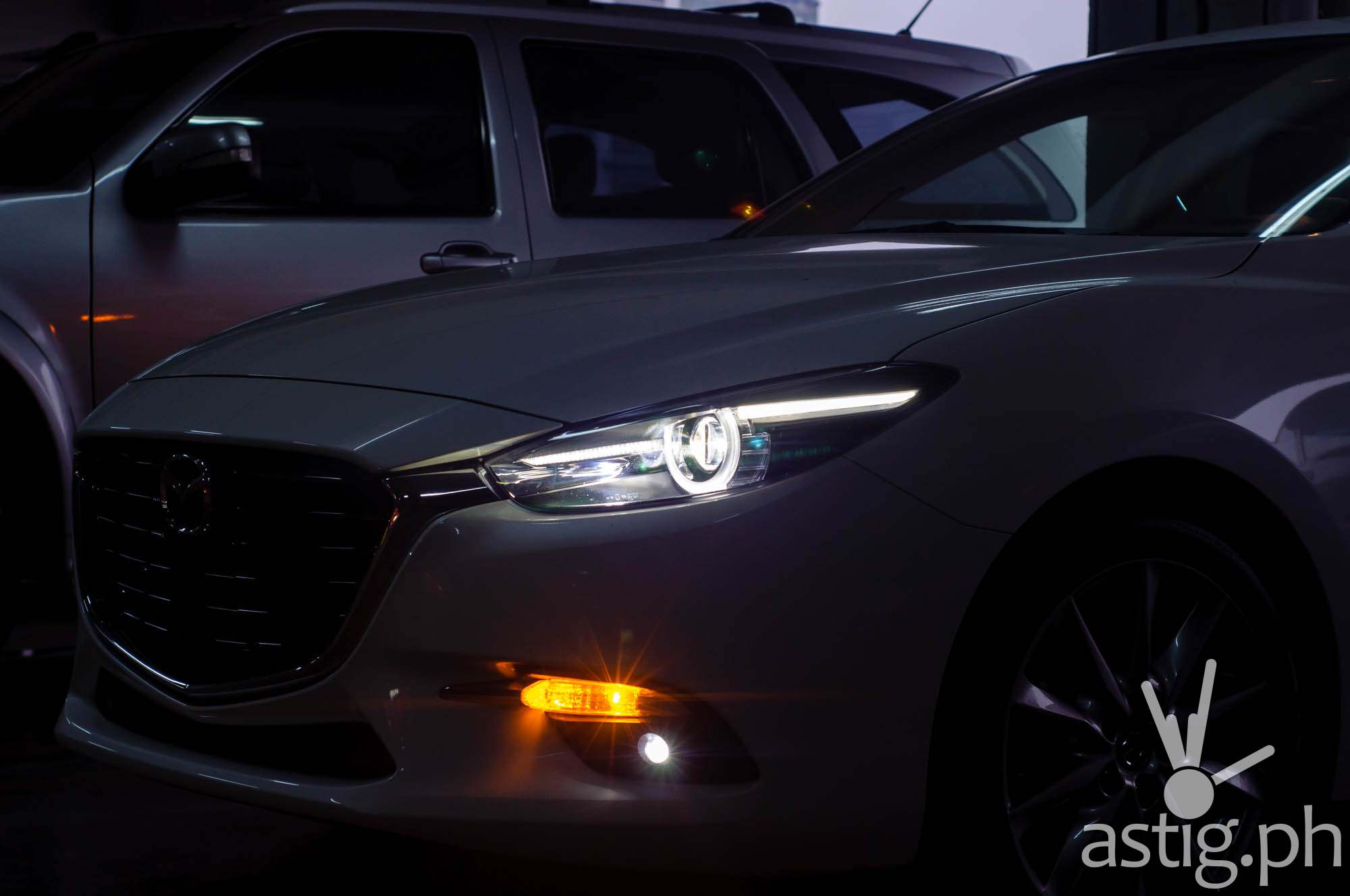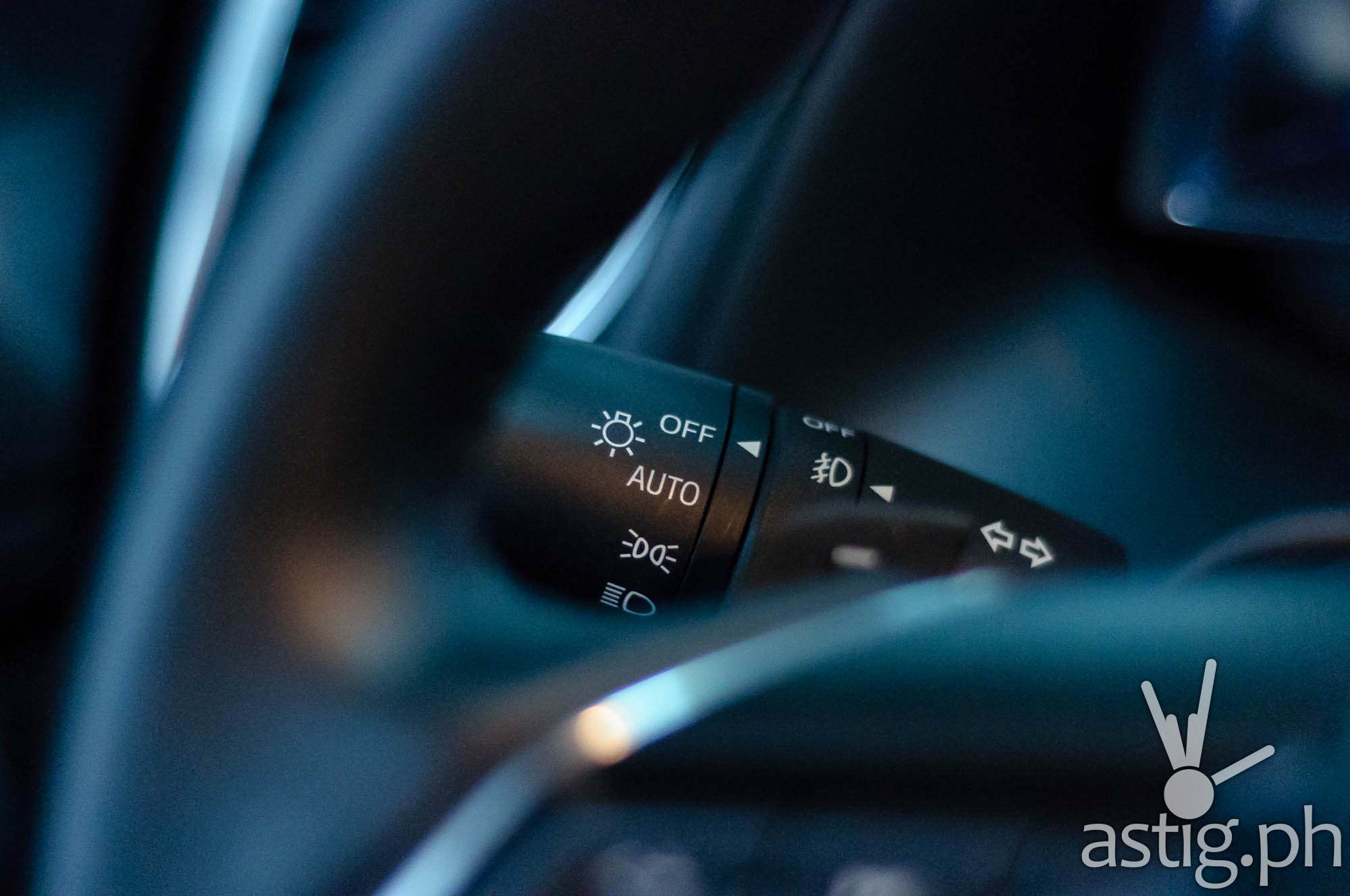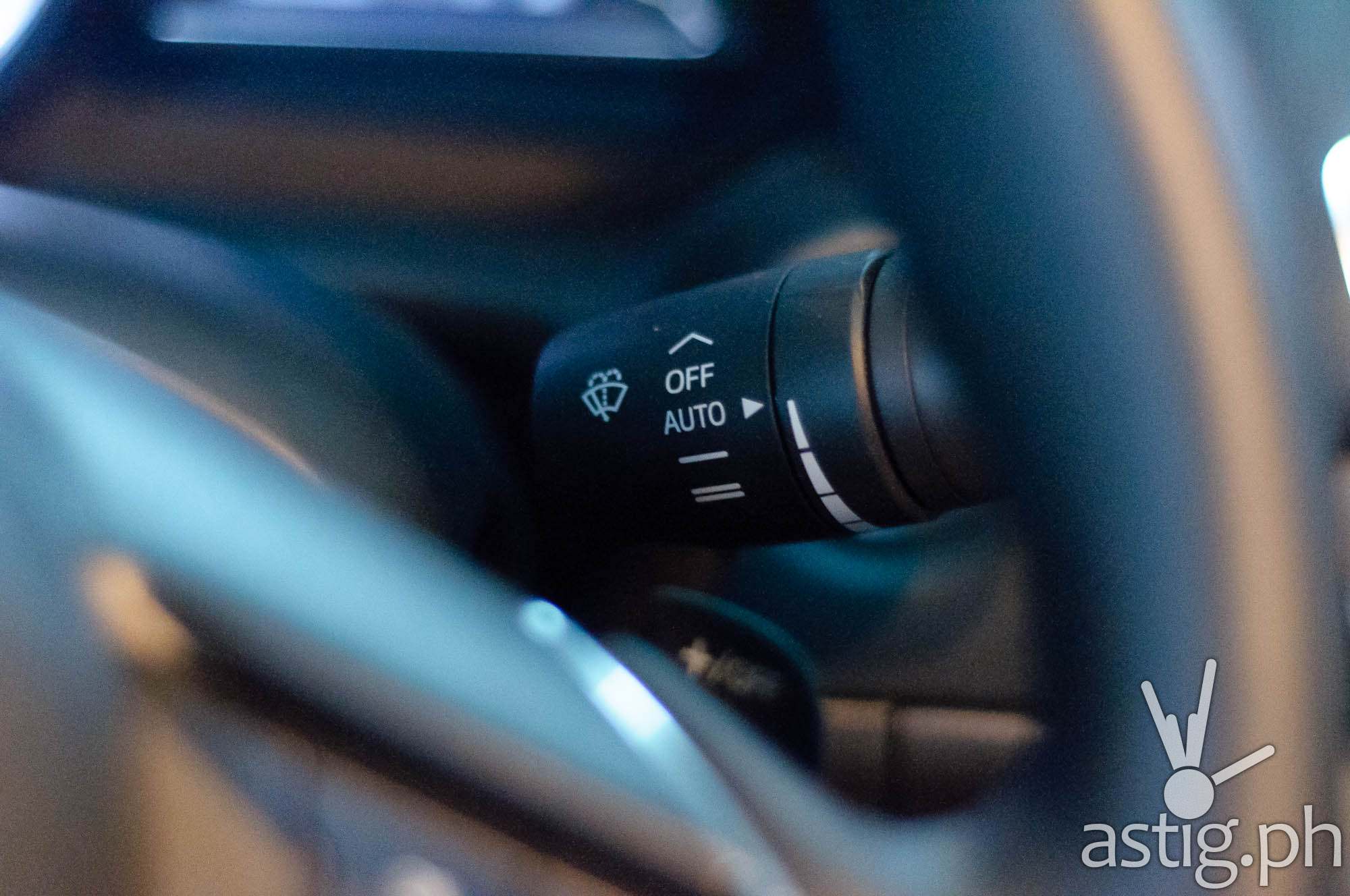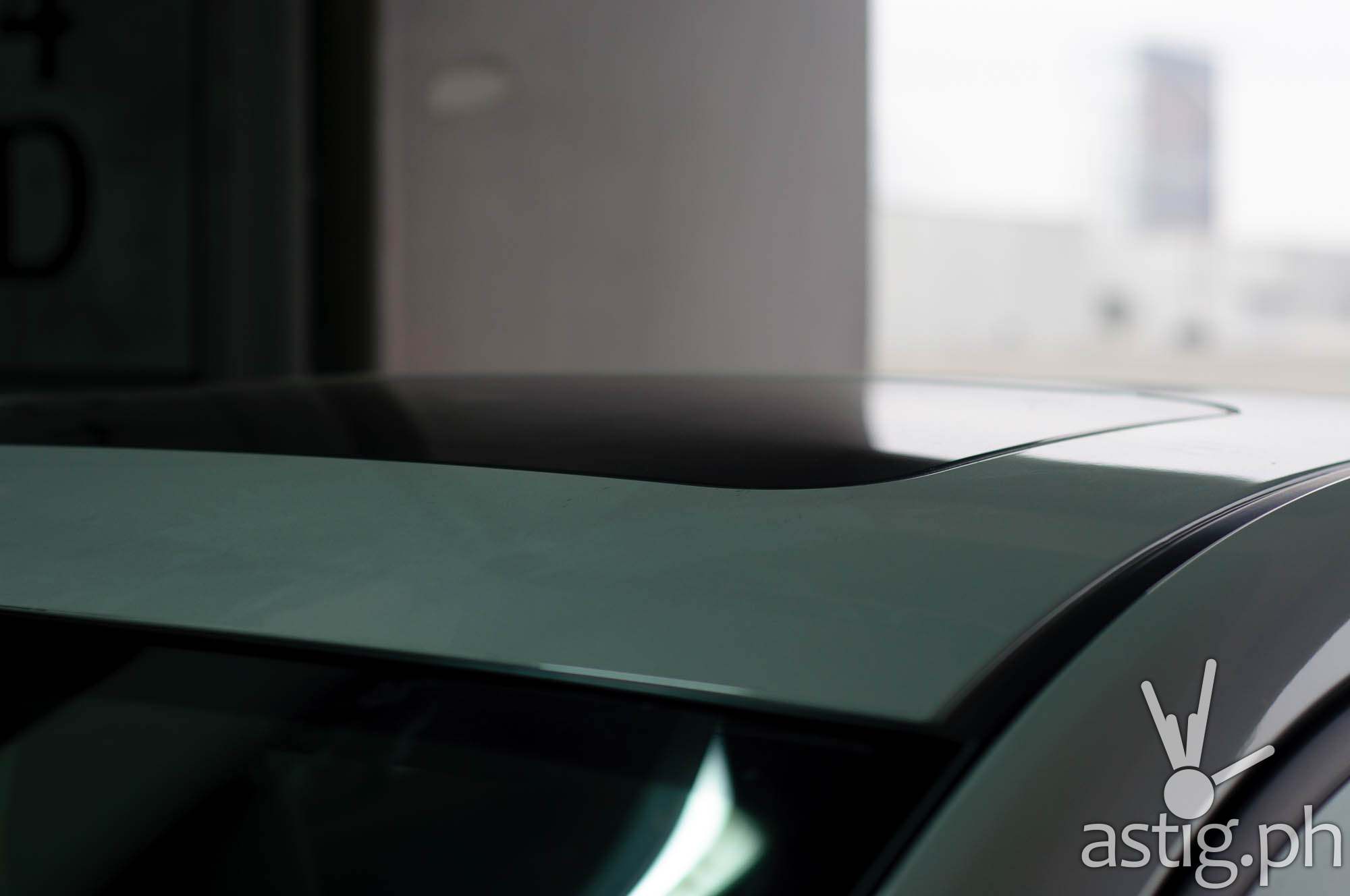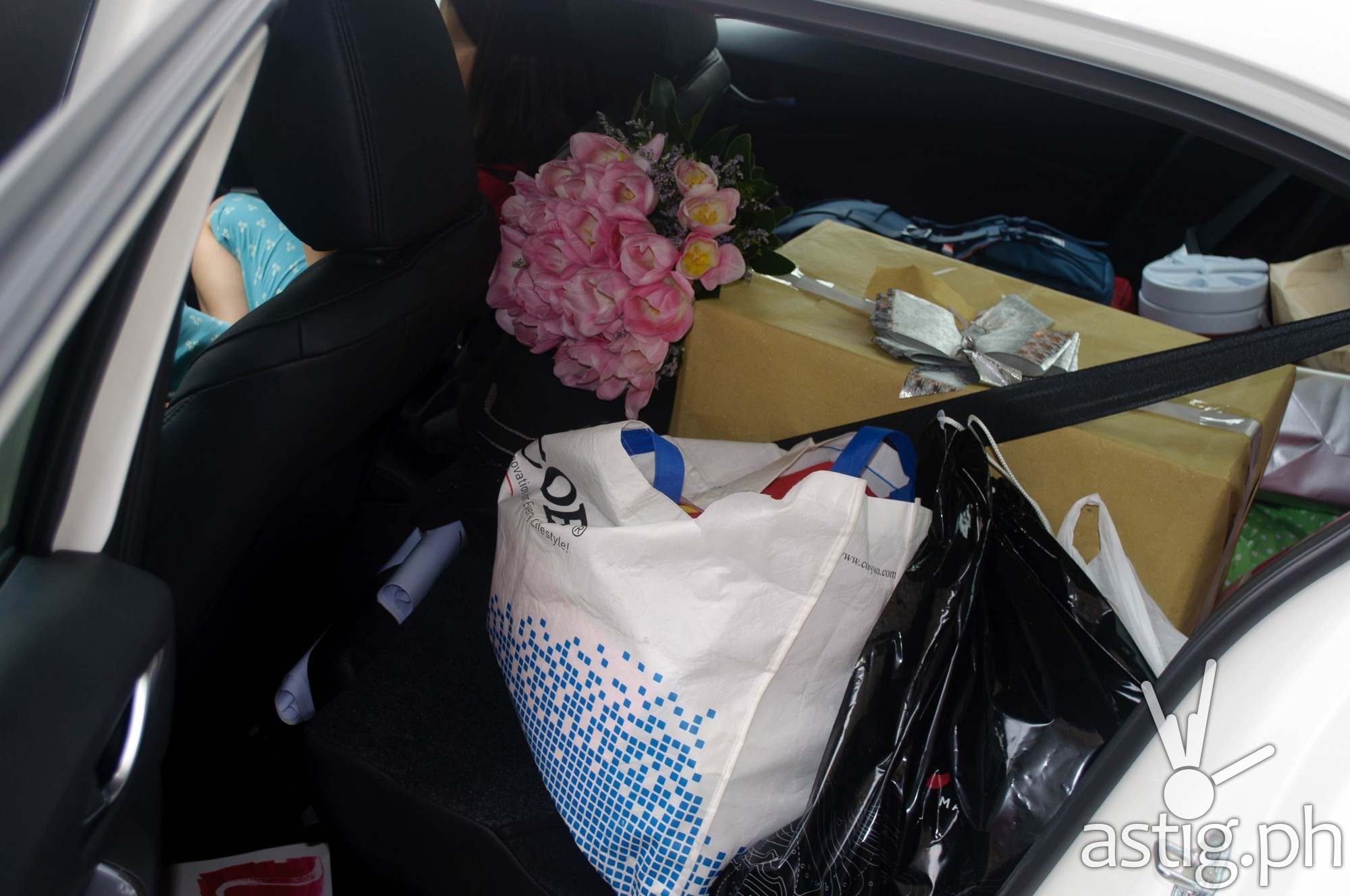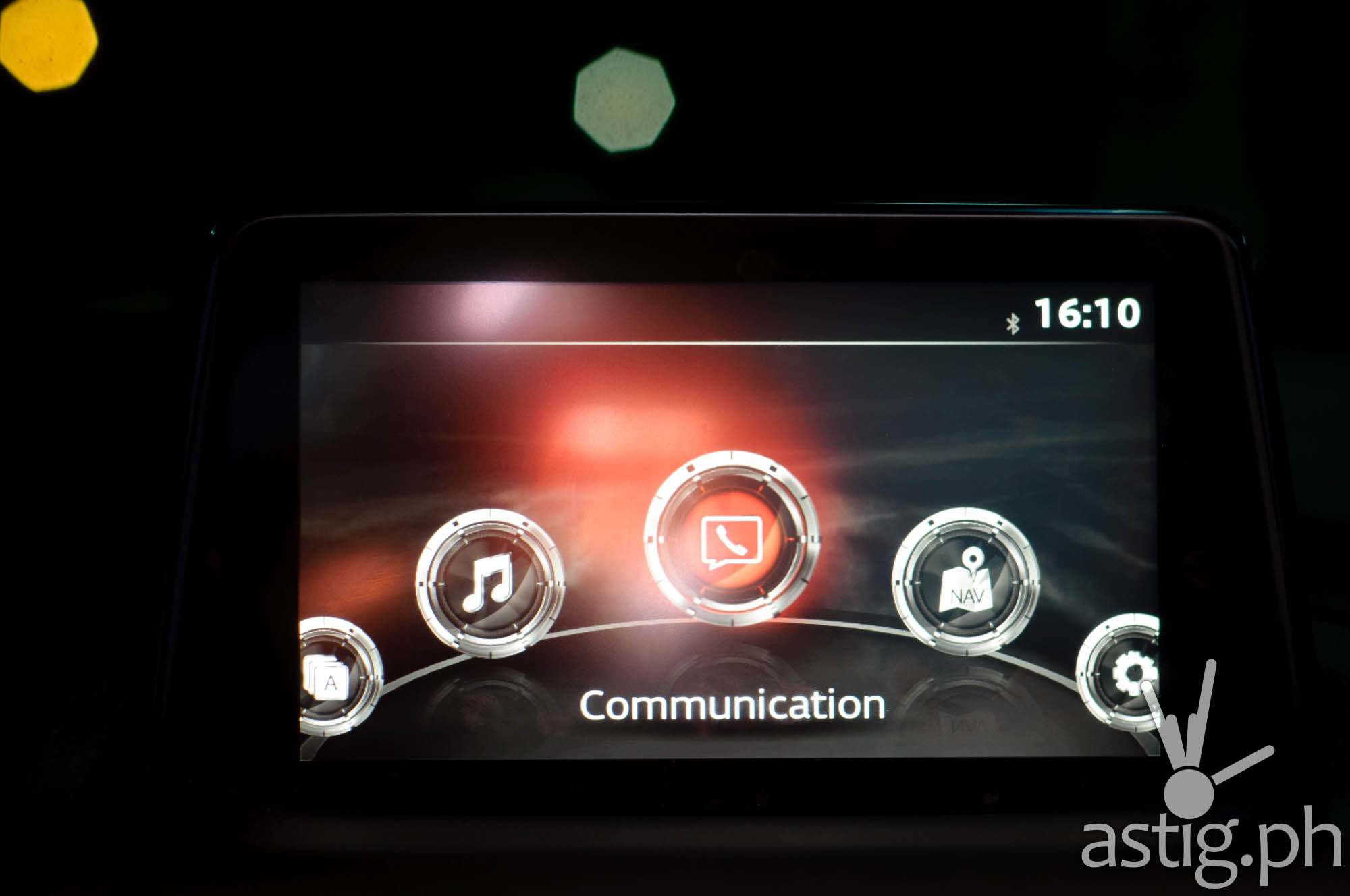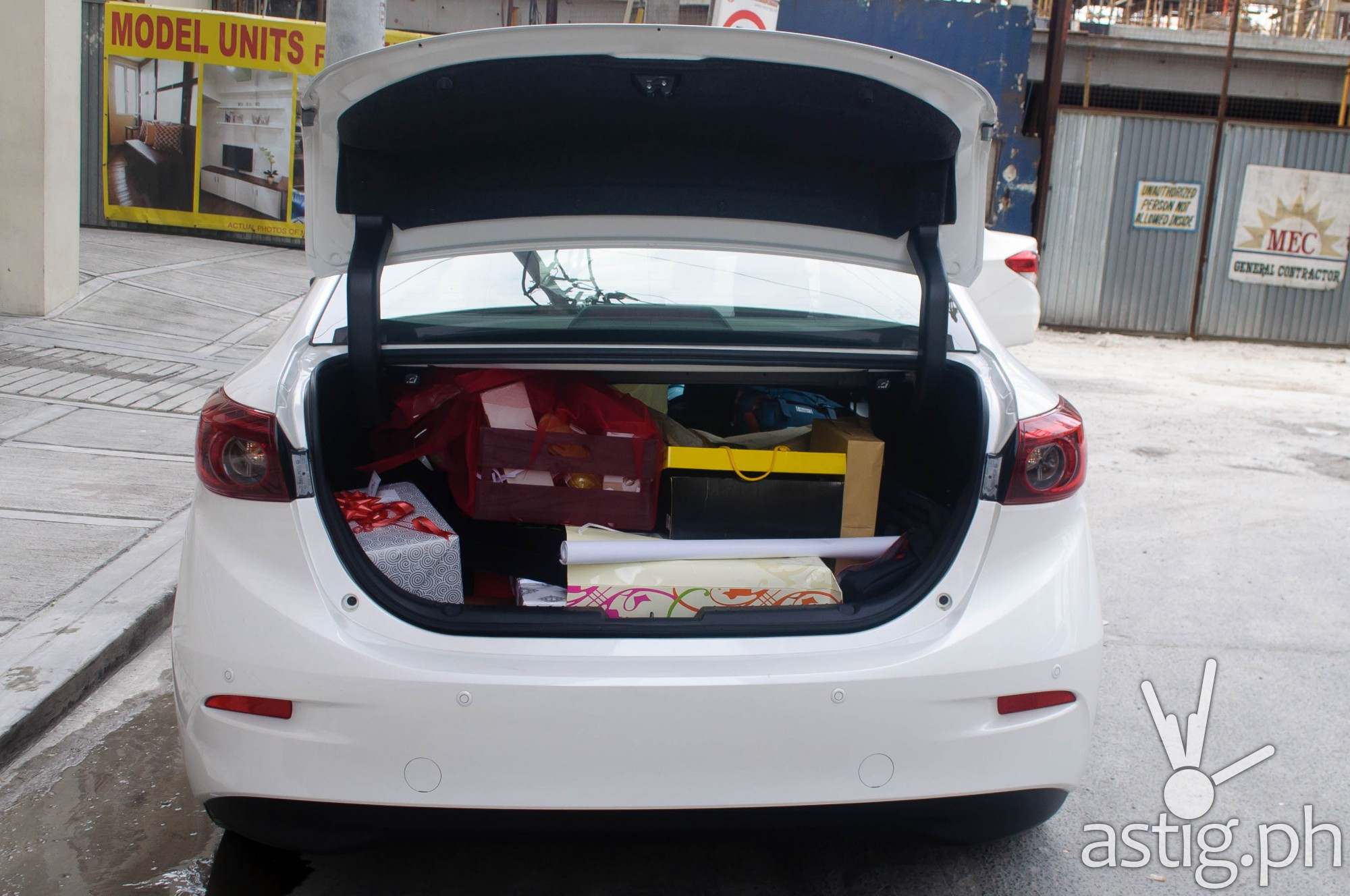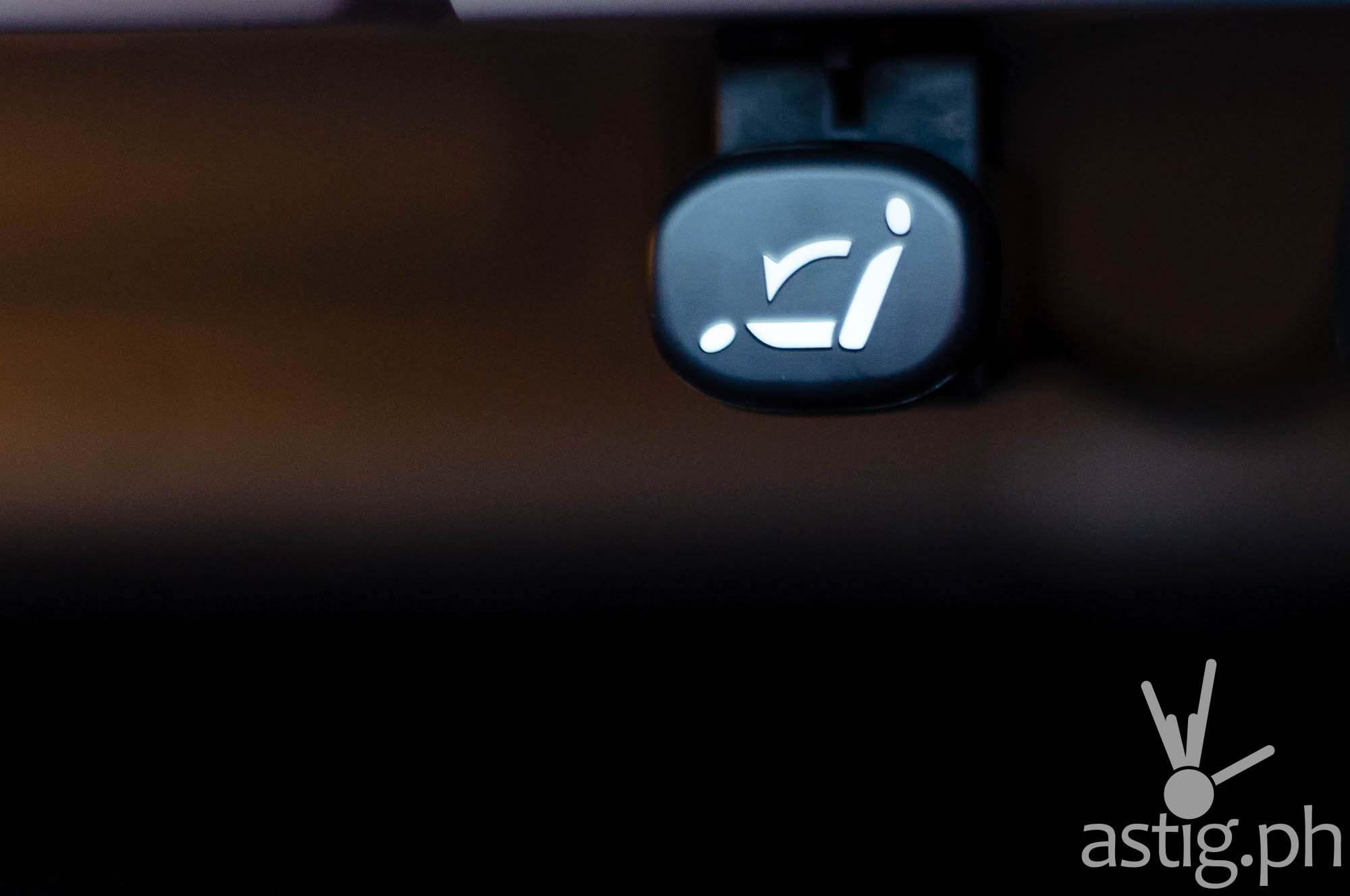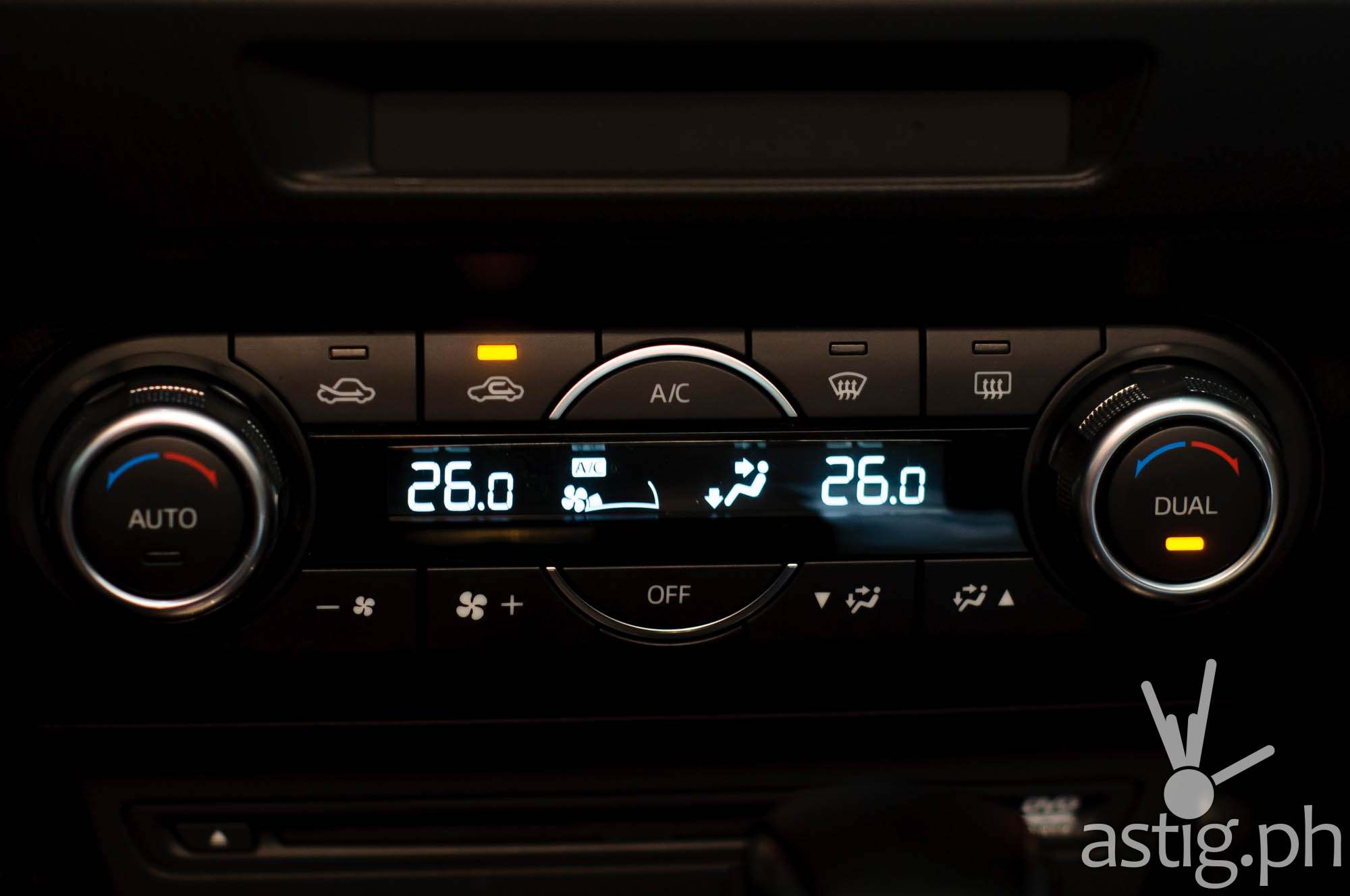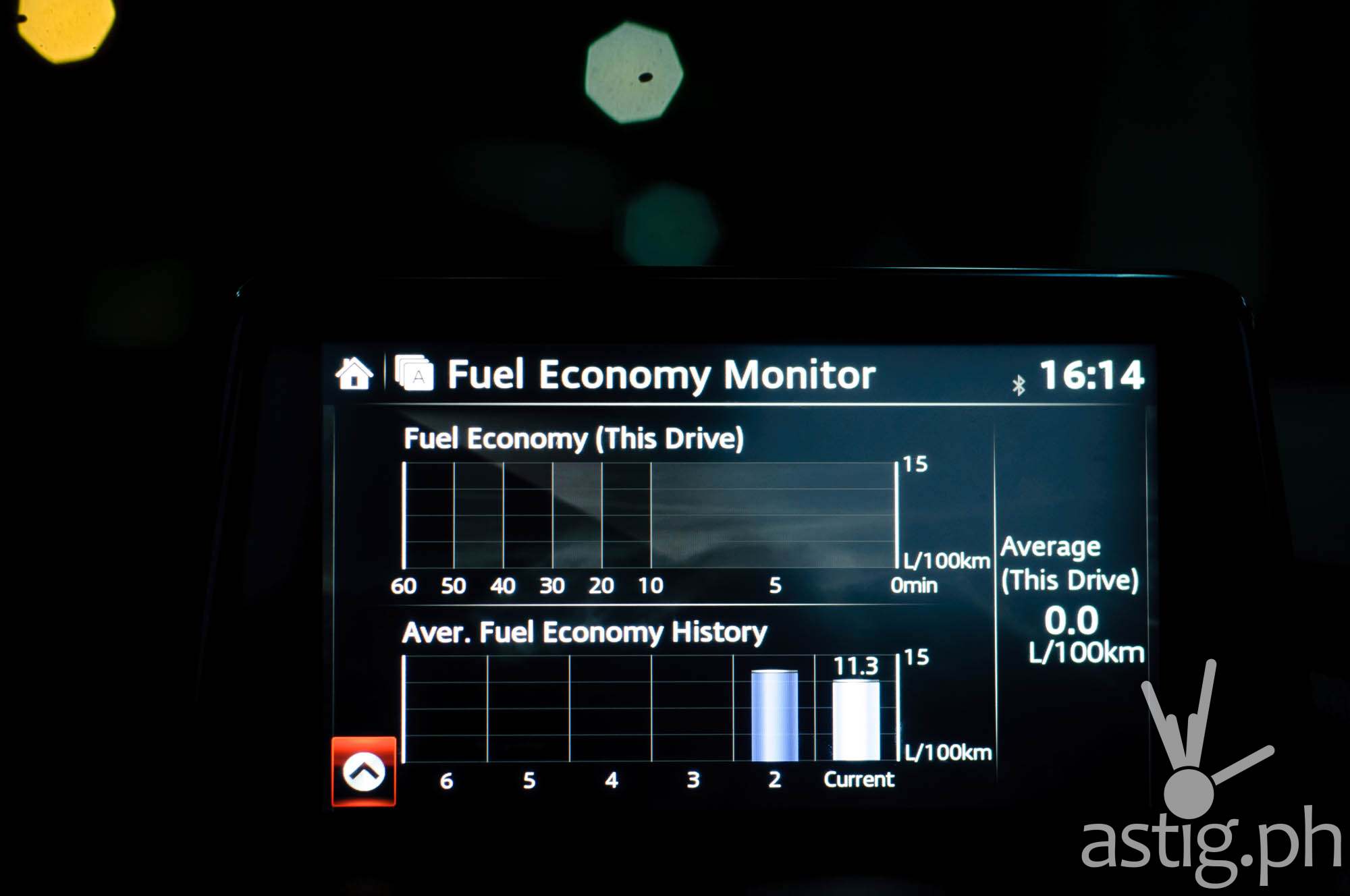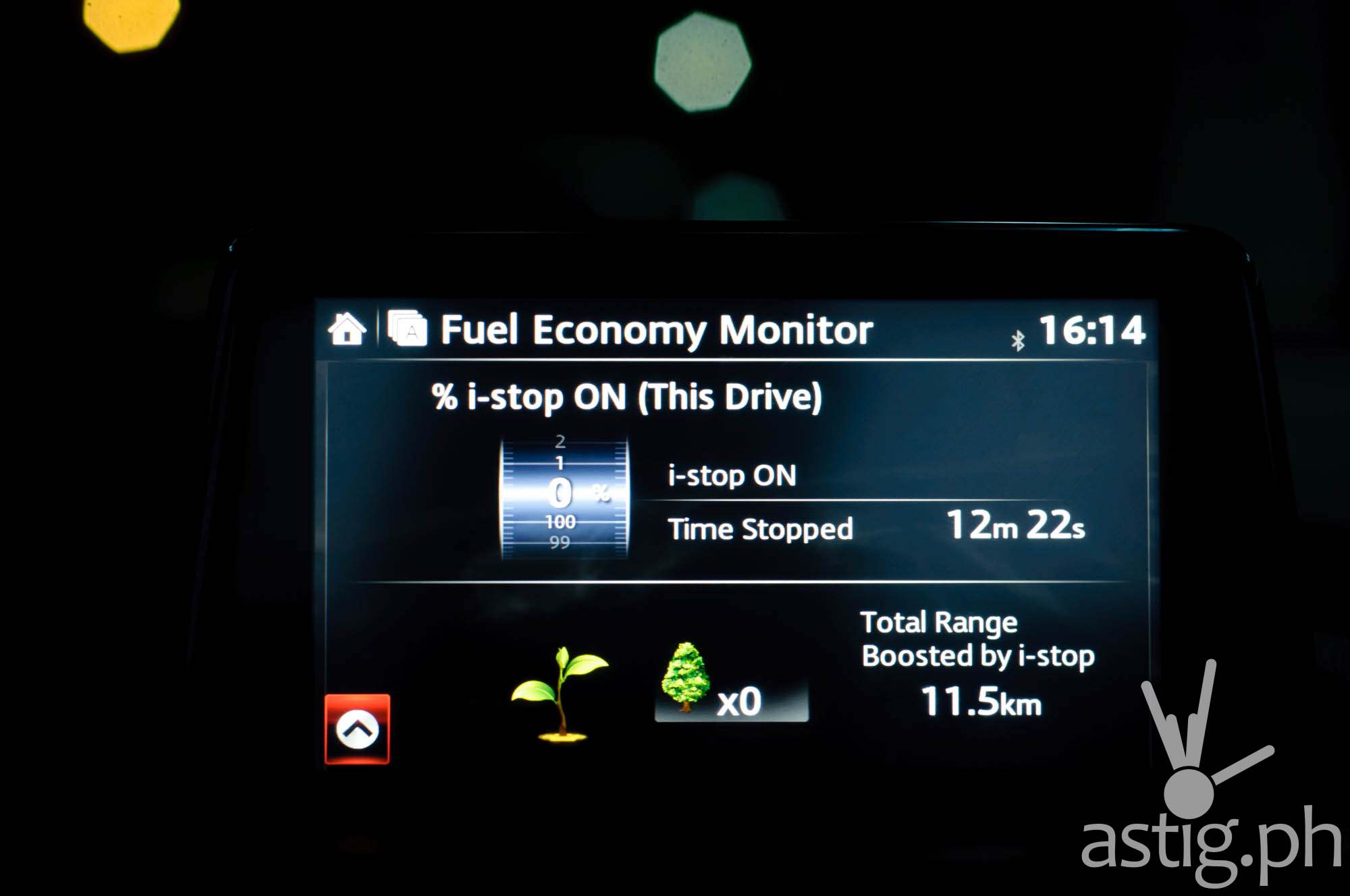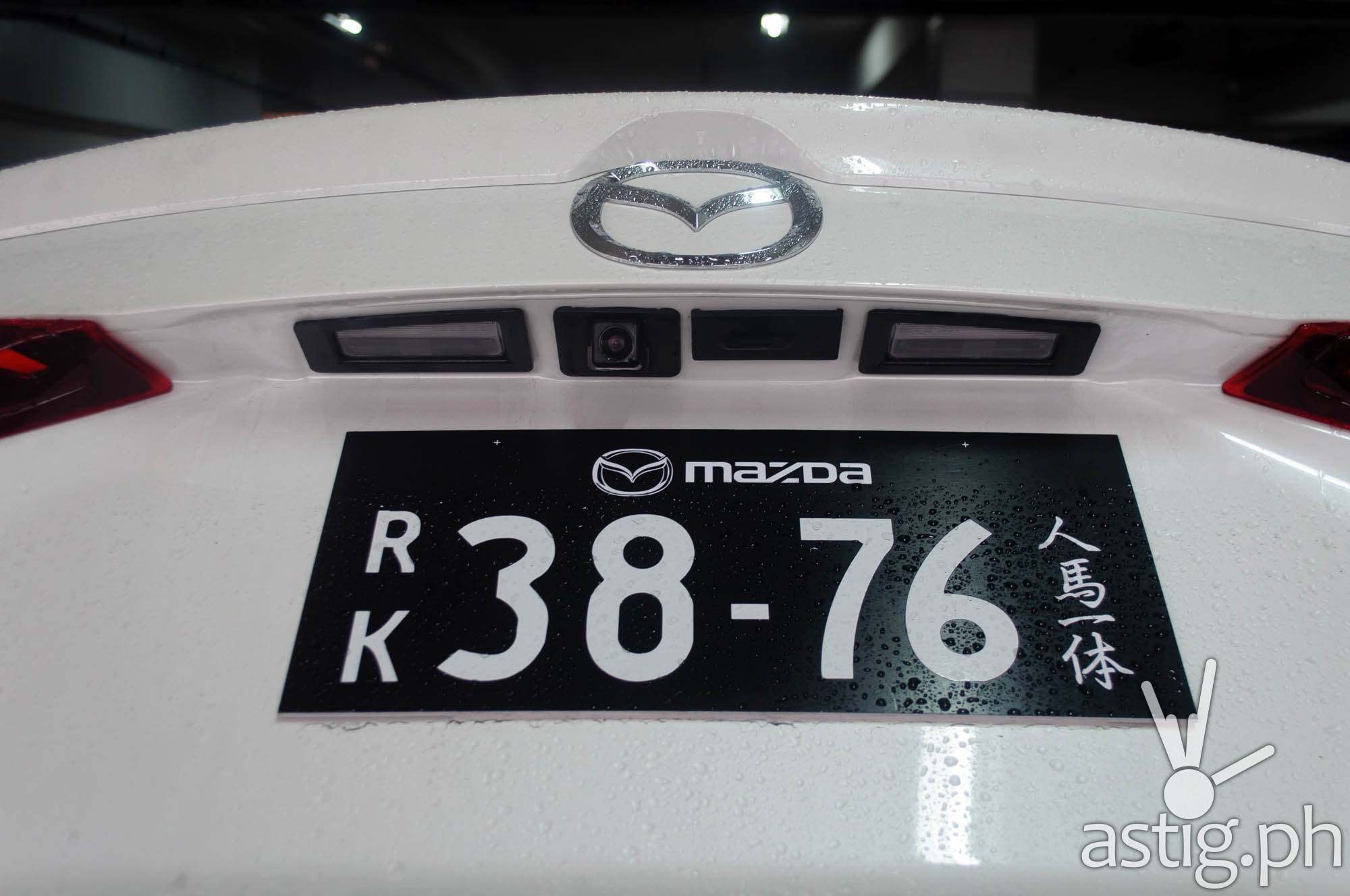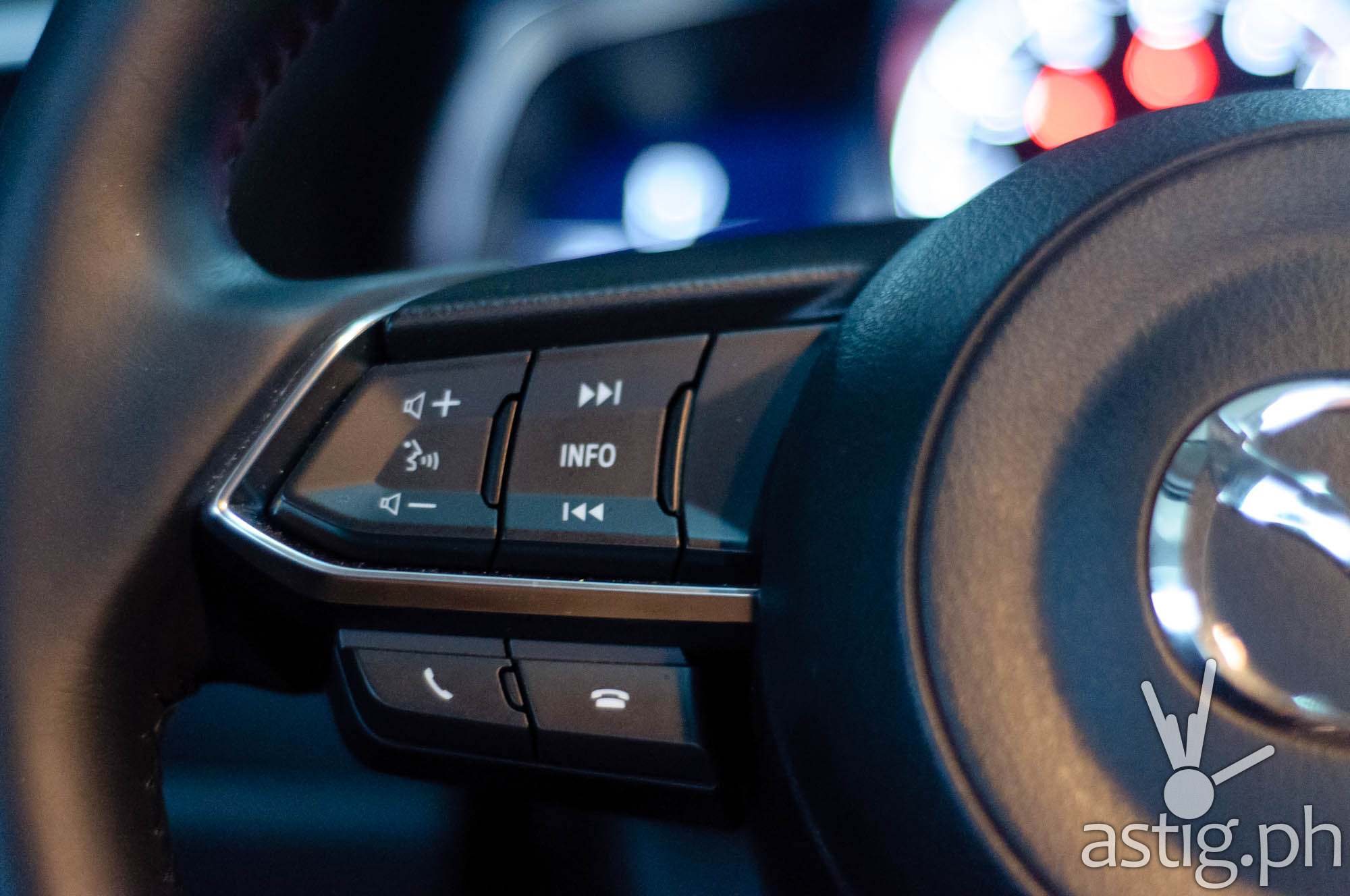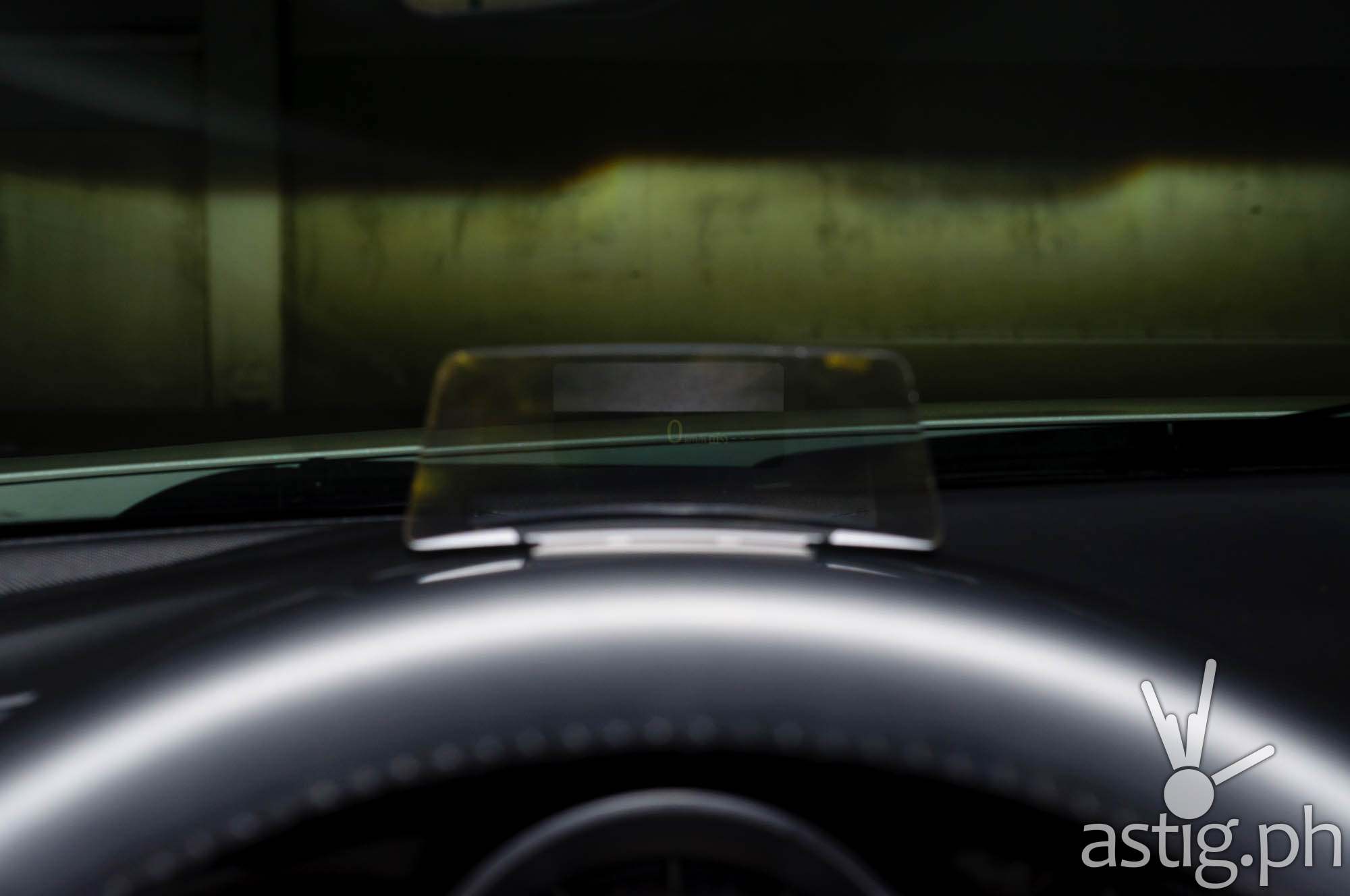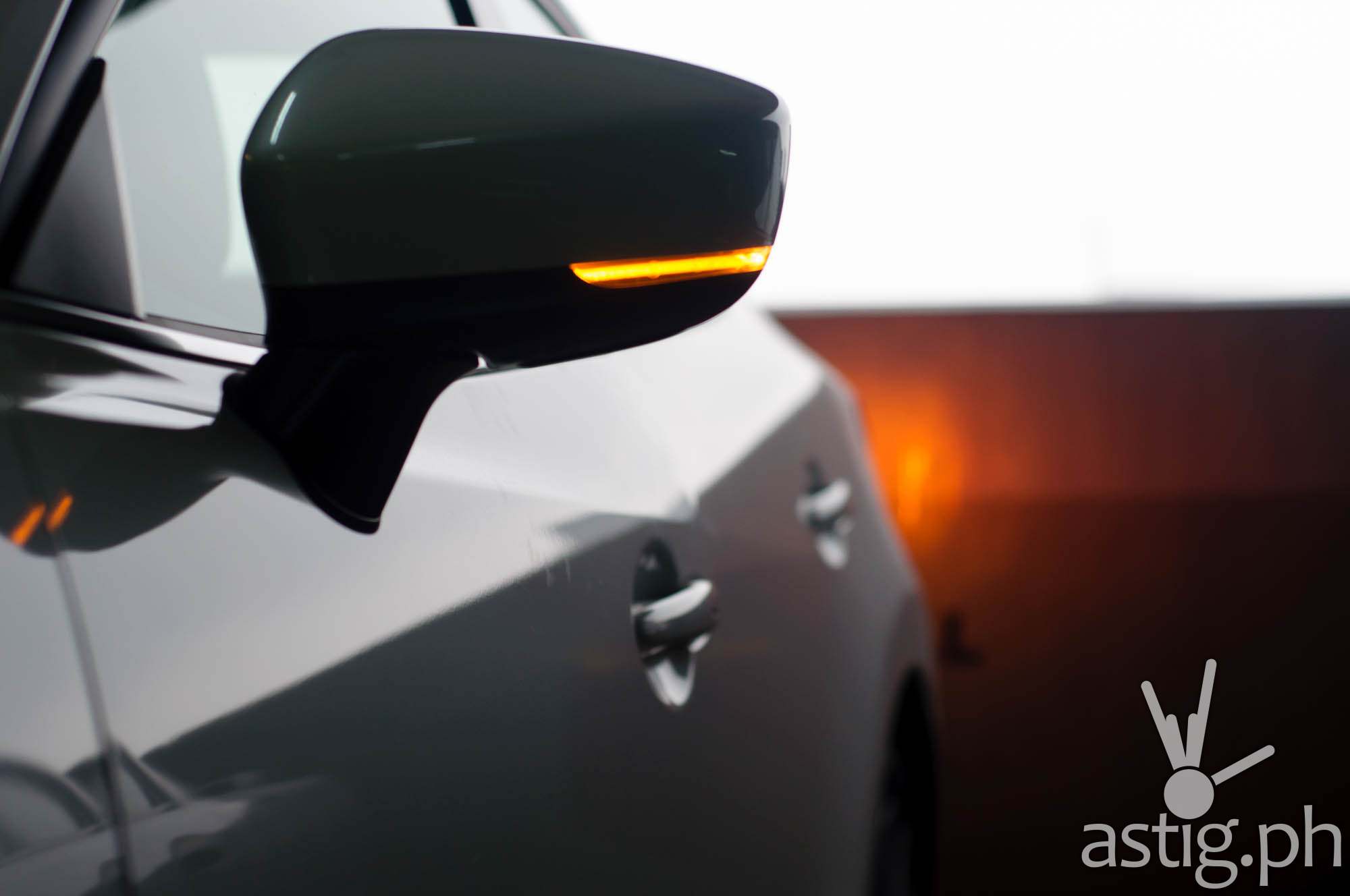Mazda continues to excite in 2017, giving the Mazda3 more than just a facelift for its newest model.
Now in its fourth year, the 2017 model extends the third-generation Mazda3 platform.
For those who are coming from a different platform, we will be taking the gas-powered Mazda3 2017 2.0L SKYACTIV-R Sedan variant for a spin in this review. If you are interested in the hatchback, keep reading – the difference is minimal.
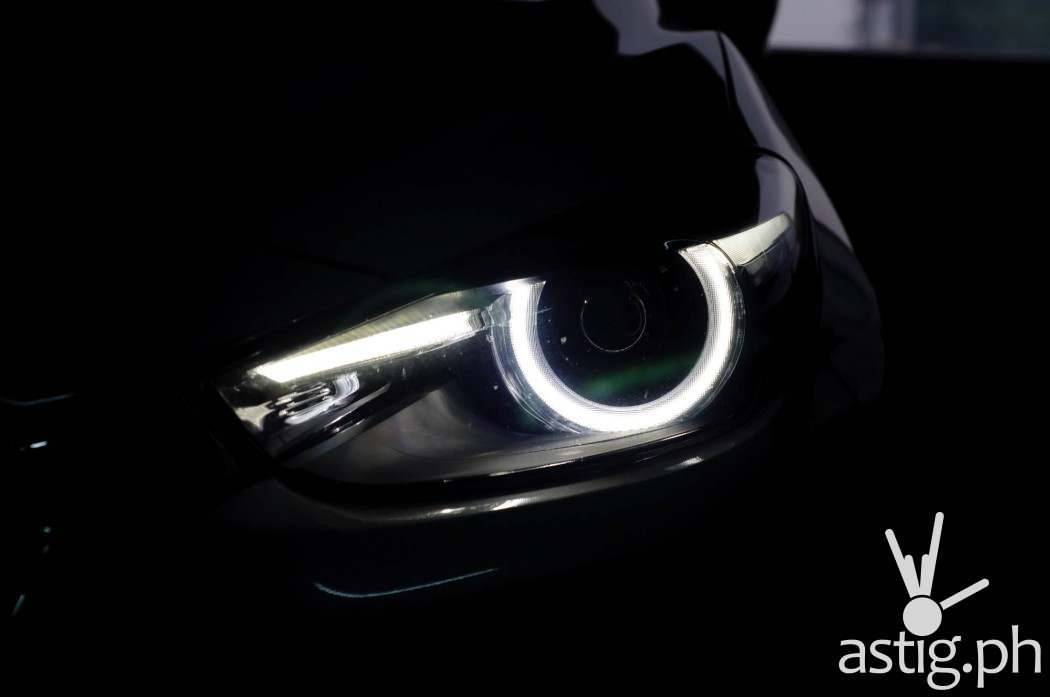
If you are already familiar with the third-generation Mazda3 platform and simply want to know the difference between the 2017 and the 2016 or earlier release, scroll down to the last portion to find out what has changed.
Exterior: Beauty in motion
The 3’s aesthetics are built on TAKERI, one of the stances under Mazda’s “KODO: Soul of Motion” design philosophy.
A powerful base is enhanced by sleek, aerodynamic lines led by the signature five-point grille design. The result is an immediate feeling of gentle strength and security.
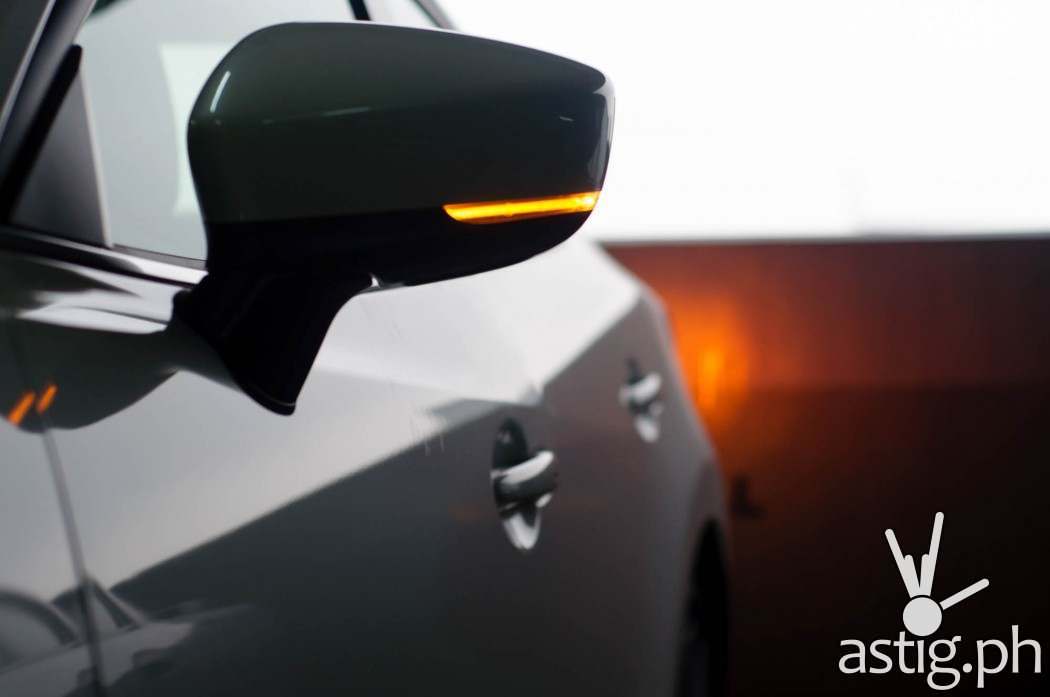
Chrome accents and LED lights provide a very modern feel that is eye-catching without demanding too much attention.
18-inch aluminum alloy wheels and stylish fog and turn lamps will surely satisfy stock enthusiasts wanting a bit more excitement.
Modern, updated looks make the 2017 Mazda3 difficult to ignore on the road.
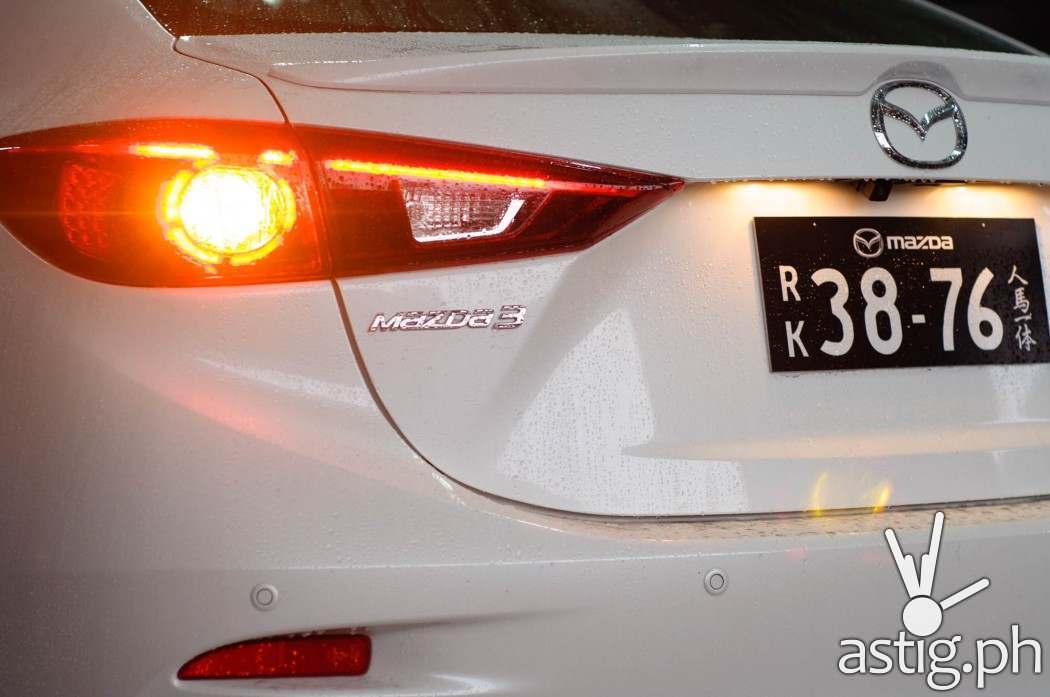
Engine: Power waiting to be unleashed
Mazda engineered the SKYACTIV engine to maximize torque while optimizing fuel efficiency, resulting in a sporty sedan that began with the “Zoom Zoom” slogan that the company introduced back in 2000.
The engineering team did wonders in this area. You can feel the power just waiting to burst forth – even with an automatic transmission.
You need on a slight flick of the accelerator brings the 3 to a roll, and a deeper press gives an immediate surge of power – the pedal is so light, and knowing that it can get even deeper makes the urge to just floor it quite difficult to resist.
If not for the traffic, we’d be zooming through the highway at top speed.
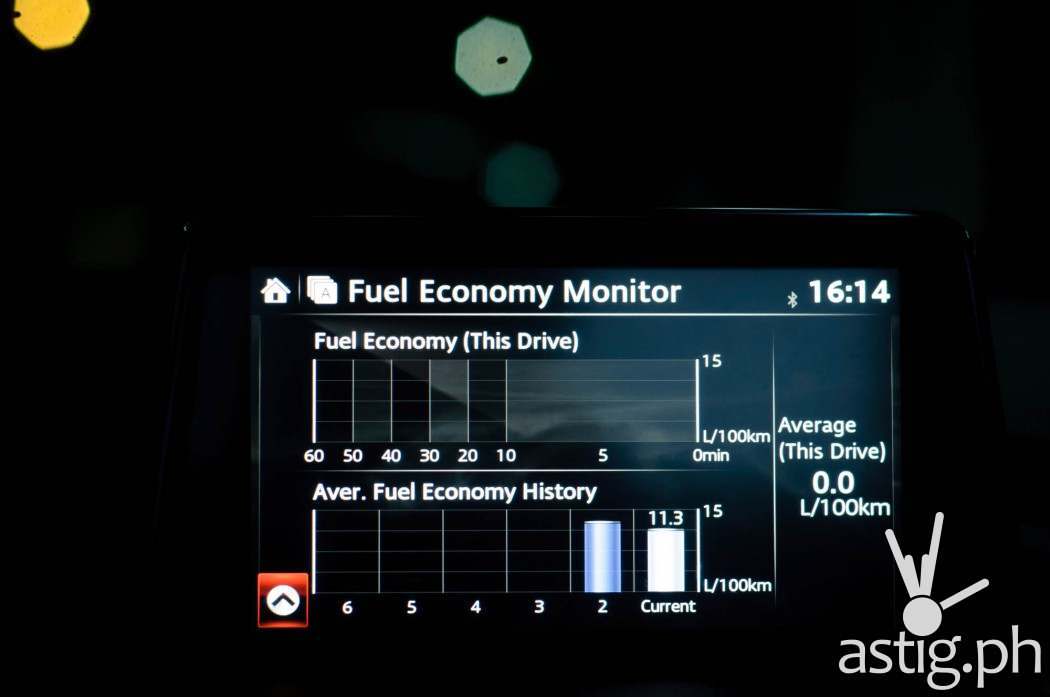
With our stop-and-go city driving we managed to eke out an average of about 12 kilometers per liter, which is way above the advertised 7-10 kilometers per liter.
This is further enhanced by i-Stop, a third-generation Mazda3 “smart car” feature that automatically kills the engine after being idle for a certain period of time.
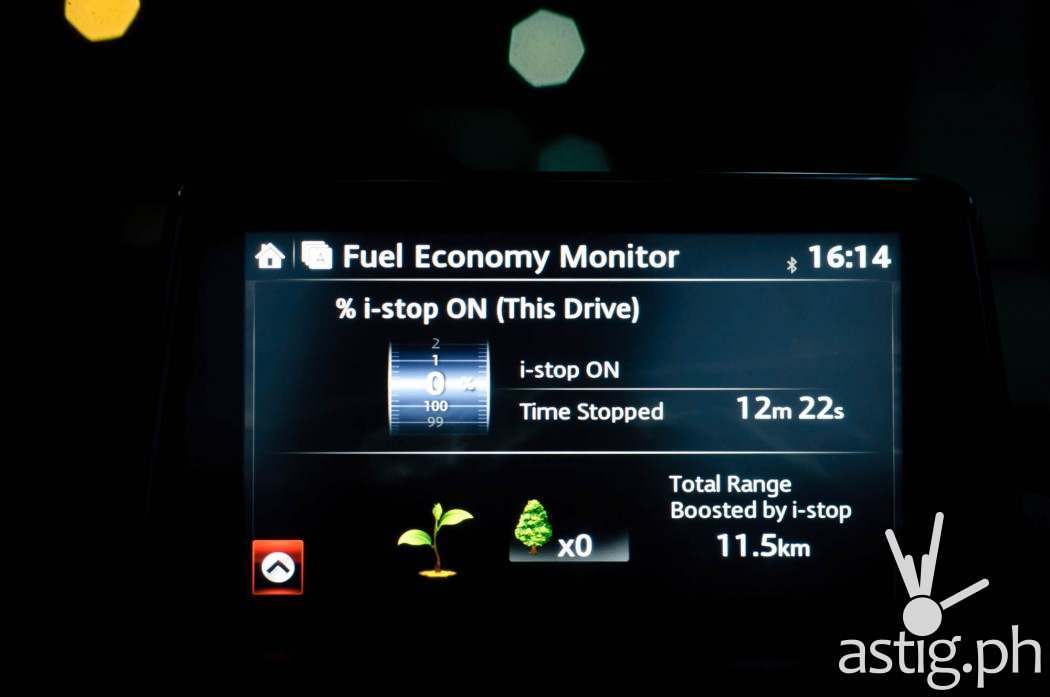
While the concept is interesting, we are worried that the advantages in fuel economy is offset by the amount of wear and tear on the engine, in addition to the cost of maintaining and replacing the special deep-cycle battery demanded by the system.
Electrical: Smarter and feature-packed
Speaking of smart cars, the Mazda3 is as smart as you can get for a modern sedan.
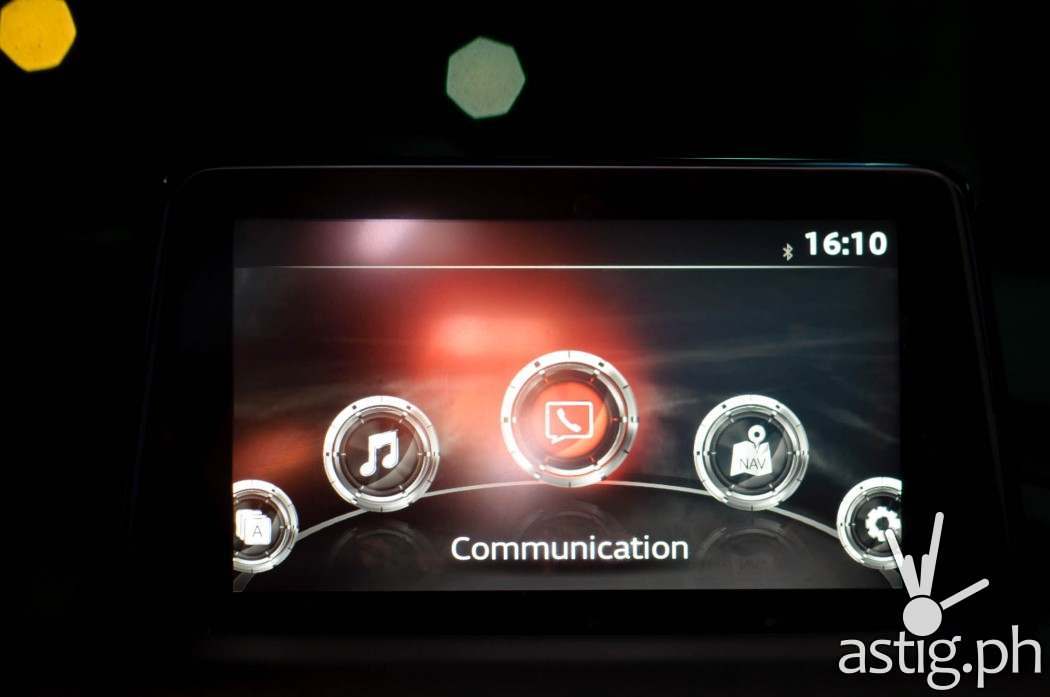
Keyless proximity keyfob-based entry, push to start, automatic headlights that detect and adapt to the environment’s lighting situation, and a touch-screen head unit with USB, Bluetooth, and WiFi are just some of the more common smart features also found in other cars.
Our favorite features include:
- i-Stop – Mazda’s proprietary technology automatically cuts off the engine when idle in order to save on fuel
- Rain detector – A sensor detects rain, automatically controlling the windshield wiper
- Rear view camera with proximity sensor – In addition to providing a real-time view of the rear, backup sensors warn the driver when the vehicle gets too close to an obstacle
- Controls everywhere – The Mazda3 is comes with controls in the middle floor area as well as the steering wheel to control the smart infotainment system
- Electronic parking system (EPS) – A push button system now takes the place of the traditional handbrake – more on this later
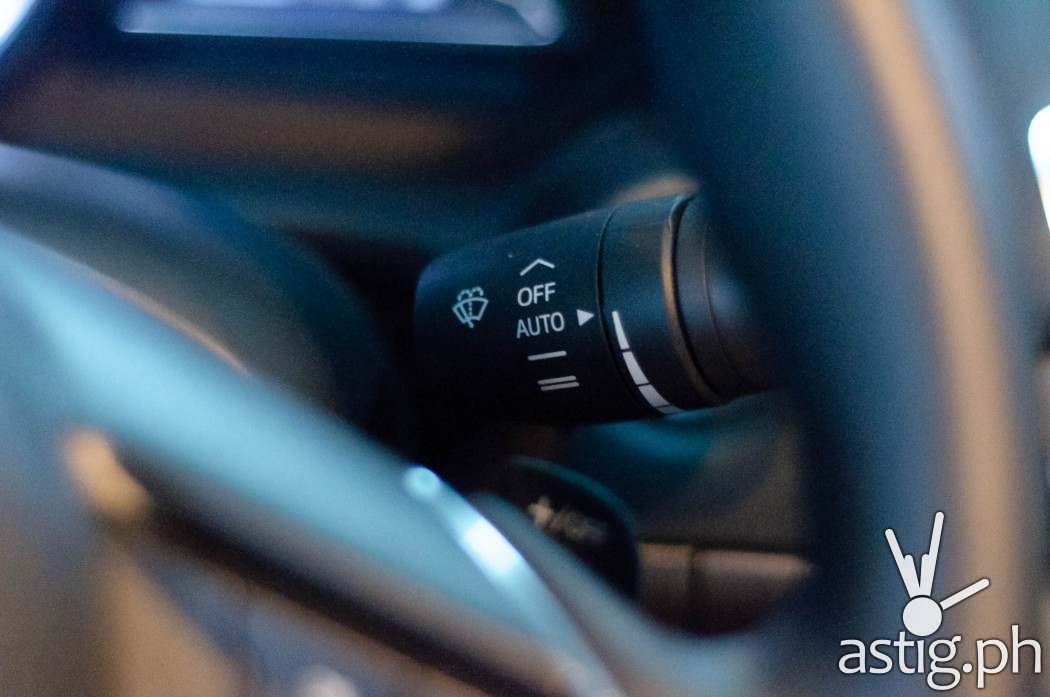
Some other features in the Mazda3 that we were not able to test include Blind Spot Detection System (found in higher end models), Child Lock Protection, as well as road signs and speed limit detection system.
Interiors: Beautiful, spacious, and functional
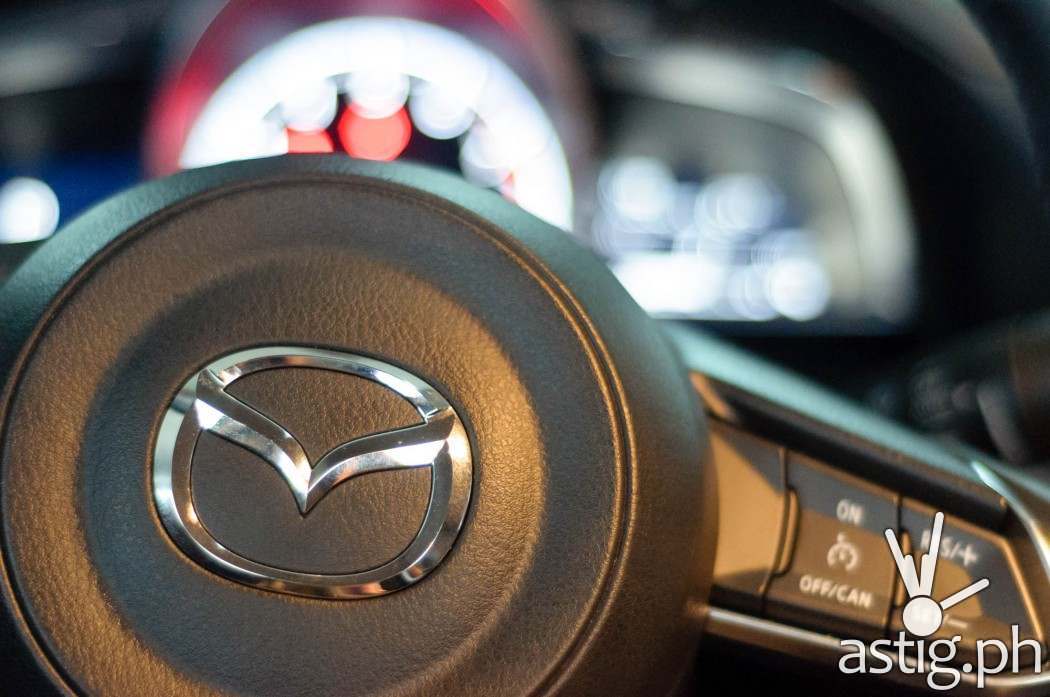
Inside, the Mazda3 2.0 is furnished with classy leather seats. The control panels are smooth black with chrome accents.
There is ample legroom on both the driver and passenger side, while the rear seats can be folded to provide maximum room at the back.
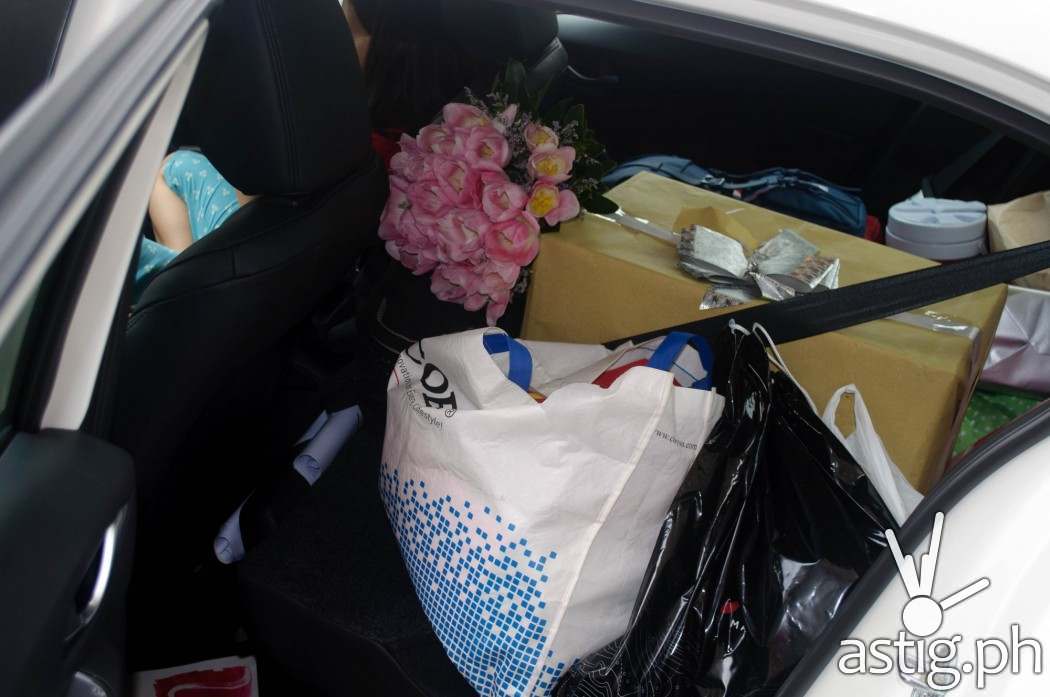
We were able to appreciate the full utility of the Mazda3 when we used it for our wedding. We had to carry a lot of stuff back and forth throughout the day, and the extra space allowed us to carry more, saving us a few trips back and forth.
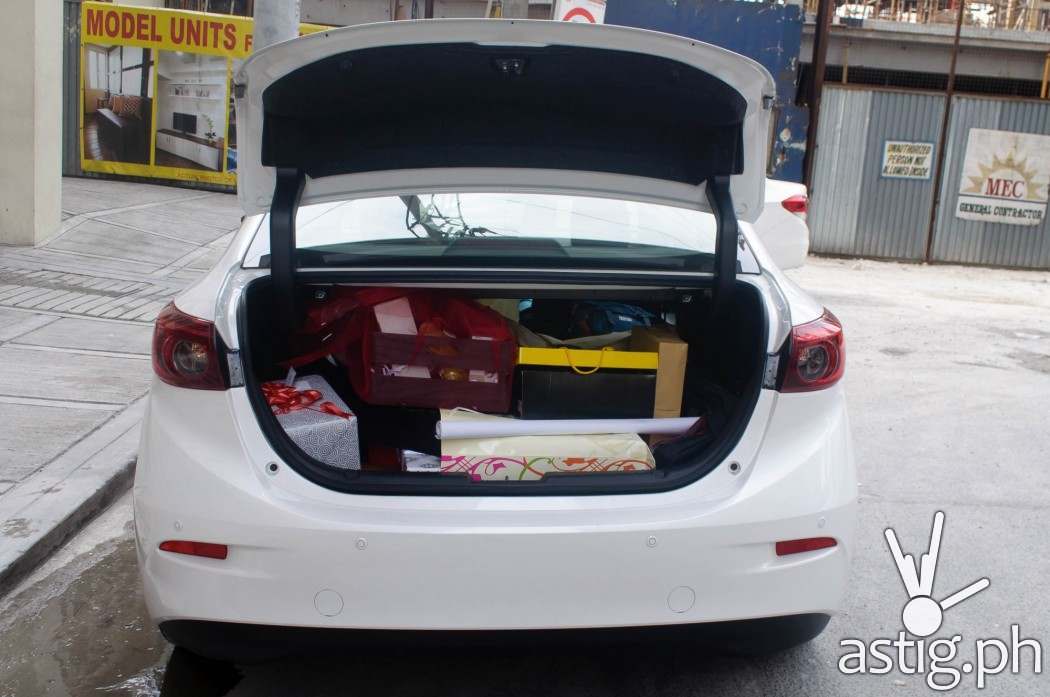
Next-generation features
The 2017 Mazda3 costs at least 45K more than the 2016 model. The Mazda3 continues to evolve with a number of noteworthy improvements over its predecessor.
Cosmetic updates: Mazda3 2016 vs Mazda3 2017
The easiest way to spot the 2017 model by looking at the foglights. The 2016 version is bolder, featuring a bigger lamp while the 2017 version is longer and sharper, with a chrome-accented bezel.
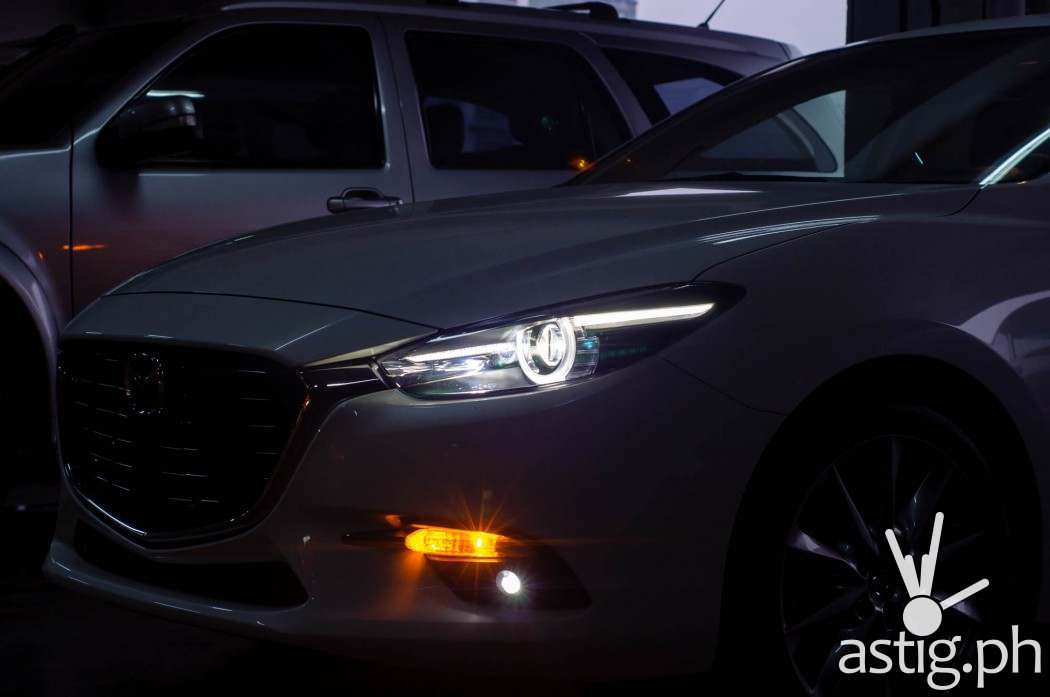
The front grille also features a subtle change – the chrome chin is shorter, giving it a more “3D” feel. In addition, the Mazda logo is lower by a centimeter, giving a bolder, more brusque look.
Turn lights have been elongated, resulting in better visibility and a more sophisticated feel overall.
Electronics updates: Mazda3 2016 vs Mazda3 2017
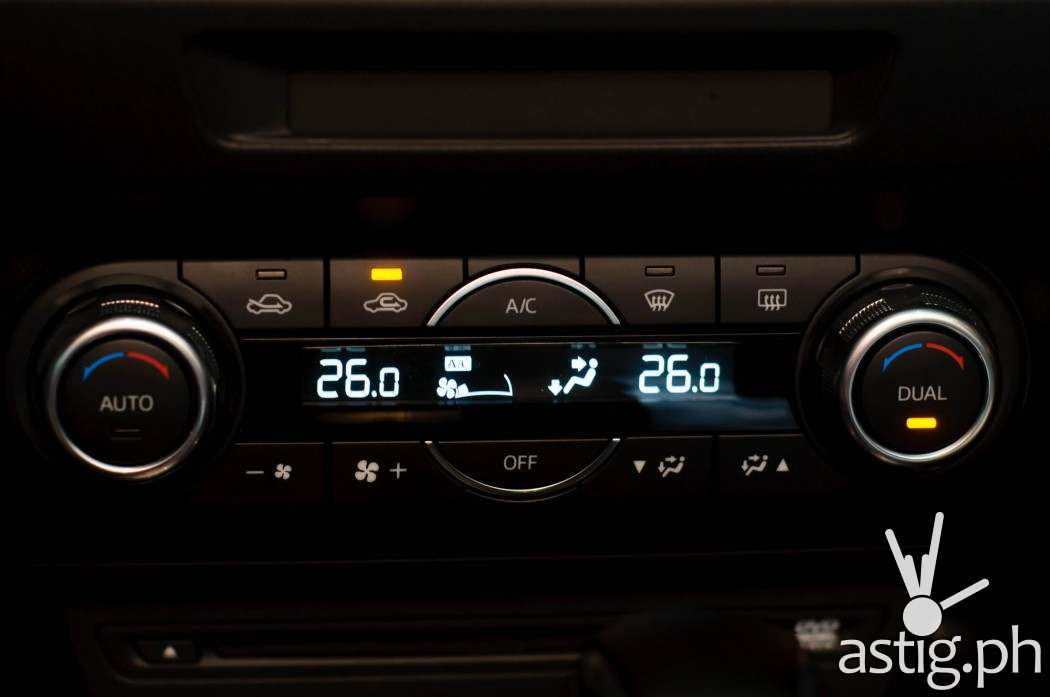
The software on the head unit of the 2017 Mazda 3 features a number of updates, but more importantly, the air conditioning console is now digital, with an LED display panel and separate “dual zone” temperature controls for the left and right air vents.
Say you’re the driver and you have a bit more insulation – maybe you’re wearing thick clothes – you can cruise at a cool 18 degrees, while your thin, thank-top wearing (read: “lamigin”) passenger remains comfortable at a toasty 26 degrees.
Mechanical updates: Mazda3 2016 vs Mazda3 2017
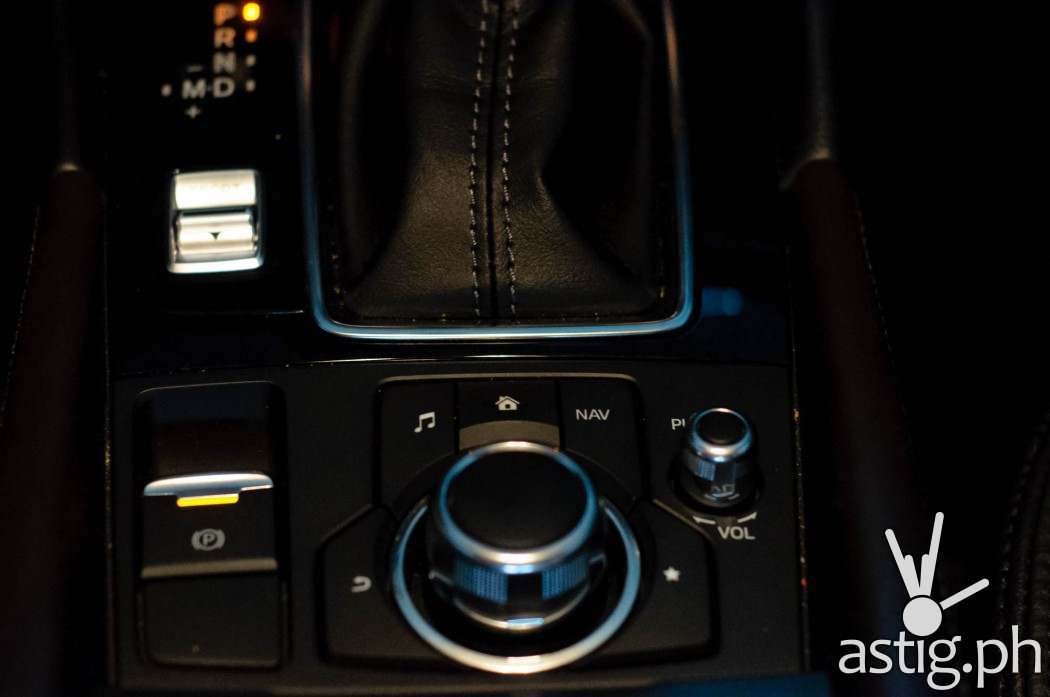
Perhaps the most important update of all is the shift to power handbrakes, dubbed the Electronic Parking System (EPS).
Traditional, mechanical handbrakes provide greater control over braking power in addition to tactile feedback – you can be certain about the handbrake’s condition once you pull it up.
The EPS, on the other hand, has two modes – parked and released. The only feedback you get is the park light going on, in addition to zipping sound of the handbrakes being engaged.
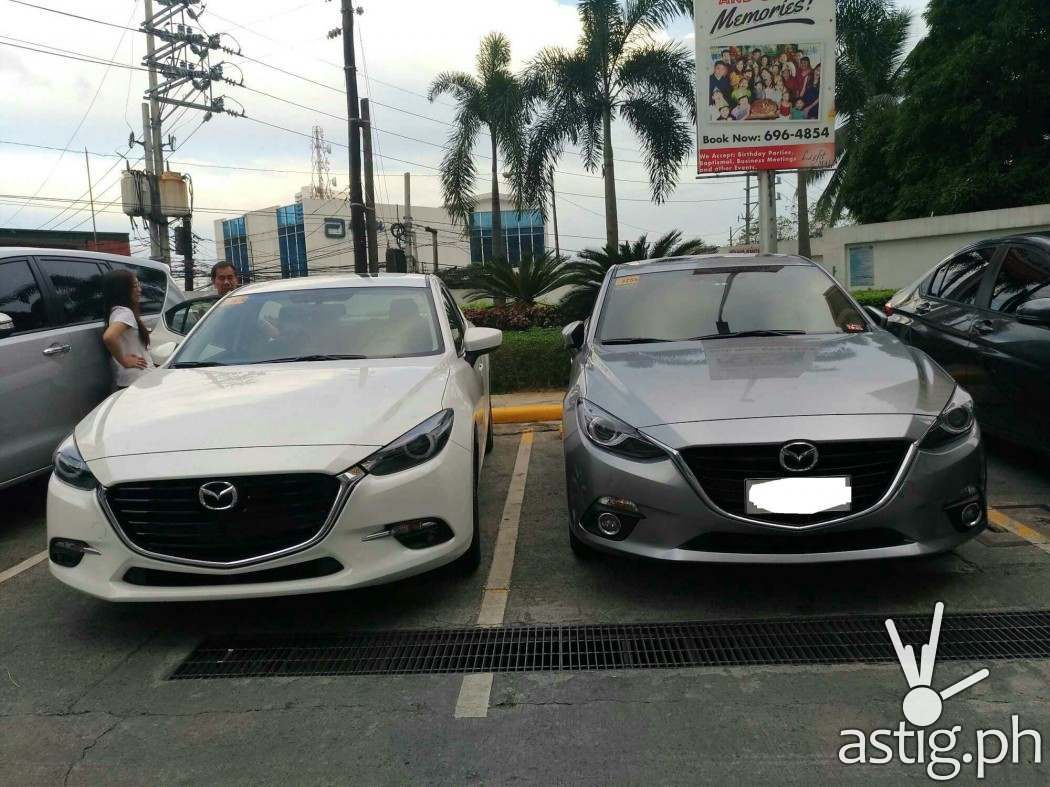
The extra space inside brought about by the absence of a mechanical handbrake can be refreshing – there is so much room now in between the driver and the passenger!
An accordion-type storage area lets you hold more than just gadgets and drinks.
Verdict
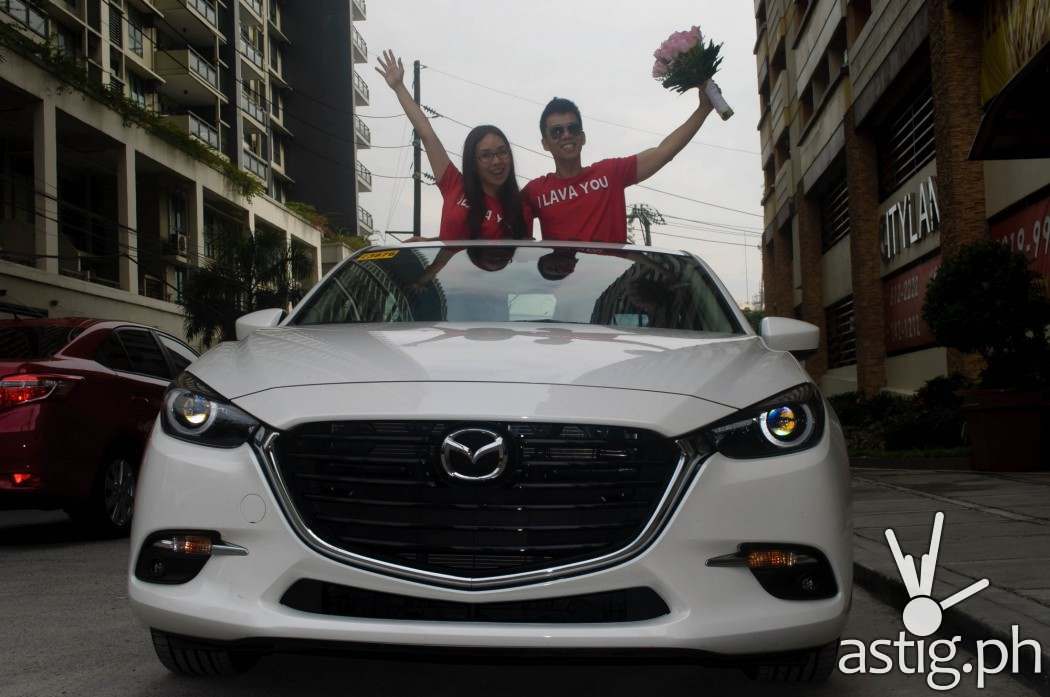
The 2017 Mazda3 remains one of the most exciting and modern sedans to arrive in the Philippines.
Modern, powerful features make driving both fun and pleasurable, which is really important when navigating through heavy traffic in Metro Manila.
The price tag difference between the 2016 and the 2017 model is around P45k. The power handbrake alone is worth the additional cost of getting a 2017 model, in addition to digital air conditioning head unit as well as other minor cosmetic improvements.
This makes the 2017 Mazda 3 almost fully automatic – the only thing left is to teach it to drive itself.
Berjaya Auto Philippines, Inc. is the exclusive distributor of Mazda vehicles and parts in the Philippines.


